

Can You Get a PhD without a Masters?
- Applying to a PhD
Yes, it’s possible to get a PhD without first having a Masters degree.
The conventional route for someone who earns a PhD is to pursue a Bachelor’s degree, followed by a Masters degree and then a PhD. However, several students opt to bypass a Master’s degree by enrolling onto a doctoral programme as soon as they complete their undergraduate degree.
Before we discuss how this can be done, it is worth mentioning the advantages and disadvantages of this route.
Advantages of Applying to a PhD without A Masters
The motivations for undertaking a PhD immediately after an undergraduate course are largely in saving money and time. This is because you will essentially eliminate a year of study. Another advantage of immediately enrolling onto a doctorate degree is project availability. If you find a project that you’re really interested in, it’s unlikely that it will still be available in a years’ time. Therefore, bypassing a Masters and enrolling directly into a PhD will increase your chances of securing the research project before it becomes unavailable.
Disadvantages of Applying to a PhD without A Masters
Although a Masters degree will add a year onto your academic journey, it can be incredibility helpful for your development and can help prepare you for a doctoral degree.
Not having a Master’s degree may prove to be a hindrance during your application process. This is because many other students will also apply to the same research projects, and it’s likely that the majority will hold a Masters. This will put you at a disadvantage to them.
Besides this, the dissertation project you’ll be required to undertake on a Master’s programme will provide you with a taste of what it is like to work on a research-based project. In addition to this, it’s likely that you’ll be able to select your own dissertation topic. As such, you can explore a specific field you’re interested in in further detail. This is a great way to confirm that both research-based work and the specific field you’re interested in are right for you before committing the next few years to it via a PhD.
Another advantage to the dissertation project associated with a Masters degree is the opportunity it provides you with to work closely with a project supervisor. This will help you understand the PhD student-supervisor relationship and communication frequency that works best for you. You can then use this knowledge to find supervisors who would compliment you when it comes time to find a PhD project to apply to. For tips on how to find a great PhD supervisor, check out our supervisor guide .
PhD without a Masters – How Does It Work?
To be considered for a PhD without a Master’s, at a minimum you will be expected to have a Bachelors degree. For students looking to enrol onto a STEM (Science, Technology, Engineering and Maths) PhD, a relevant Bachelors in a 3-year undergraduate course is usually expected. However, this is not the case for students looking to apply to non-STEM PhDs. Rather, students looking to apply to doctorates in subjects such as those surrounding Arts and Humanities are usually expected to have a relevant Bachelors from a 4-year course.
In addition to this, you will need to have demonstrated strong academic performance during your undergraduate course. This means that your Bachelors will need to be at least a UK Upper Second-Class Honours (2.1) for nearly all institutions to consider you.
Should you be accepted into a PhD programme without a Masters, the usual process will be to first register you as an MPhil student. You will then have a year to prepare and submit a thesis. Your thesis will need to detail the research you have carried out within that year and outline how you intend to continue it into a full PhD study. There are three outcomes of this MPhil thesis review:
- Failure and you’re not awarded anything.
- You pass, however, the supervisor doesn’t believe you’ve demonstrated strong research skills. You’re awarded an MPhil but they do not upgrade your course to a PhD programme.
- You pass and the supervisor believes you have proven yourself as a capable researcher. Your course is upgraded to a PhD as opposed to you being awarding an MPhil.
For more information on these outcomes, read the outcomes section of our PhD Viva guide .
Integrated PhD
Some universities offer Integrated PhD degree programmes (also known as an Integrated Masters degree). These are four-year programmes comprising of a one-year Masters degree immediately followed by a three-year PhD degree. These can prove a great option for graduate students who are looking to undertake a PhD without a Masters but are struggling to meet the eligibility requirements. You can read about the many benefits of integrated degrees here .
Finding a PhD has never been this easy – search for a PhD by keyword, location or academic area of interest.
PhD without a Bachelors – Is It Possible?
Yes, it is possible to get a PhD without a Bachelor’s, however, this is extremely uncommon.
When this occurs, it is almost always reserved for very mature individuals. For example, an individual may not be in active academia but still may have significantly contributed to their field. This contribution could be through the work they have undertaken as part of their career, or as part of a long-term study project, they have undertaken out of self-interest.
In either case, the individual would need to prove that they have extensive experience in their field and have directly contributed to new knowledge within it. The key factor here is that their work has pushed the boundaries of existing knowledge. It is not enough for an individual to be regarded as an expert in their field – they must have contributed something new and meaningful. It’s common for individuals awarded a PhD through this means to have produced several publications within their lifetime. It’s also common for the individual to have gained several professional accreditations within their field before even being considered suitable for a PhD research degree.
Universities Offering PhD without a Masters
Unfortunately, there is not a centralised list of universities which offer PhDs without a Master’s degree. The reason for this is that the edibility requirements differ from PhD to PhD and from department to department.
Therefore, you will need to check the guidelines for each individual university and the requirements for each specific PhD you’re interested in.
Should you find a PhD programme you can apply to with a Bachelors, make every effort to make your application as strong as possible. This is because you will be competing against other candidates, most of who will have a Master’s degree.
Not only can you strengthen your application by having a Bachelors with a First-Class Honours (1st), but you can also do so by showing the traits of a successful researcher. This includes showing a genuine interest in the project, a high work ethic, and exceptional communication skills.
Additionally, a strong letter of recommendation from a respected university lecturer will prove very beneficial. This is especially true if the lecturer supervisors his or her own PhD students. This is because the lecturer will understand the skills required for an adept research student.
For more advice on how to apply to a PhD degree, check out our Application Process Guide.
Browse PhDs Now
Join thousands of students.
Join thousands of other students and stay up to date with the latest PhD programmes, funding opportunities and advice.

A Comprehensive List of Universities Offering PhD Programs Without a Masters Degree in the USA
May 30, 2023

Are you considering pursuing a PhD in the USA but don’t have a master’s degree? While a master’s degree is typically a prerequisite for a PhD program, there are some universities that offer PhD programs without requiring a master’s degree. In this article, we will provide a comprehensive list of universities that offer such programs, as well as the pros and cons of pursuing a PhD without a master’s degree.
- Why Pursue a PhD Without a Master's Degree?
- Pros and Cons of Pursuing a PhD Without a Master's Degree
- Is it Possible to Get Accepted Into a PhD Program Without a Master's Degree?
- How to Prepare for a PhD Program Without a Master's Degree
- What are the Admission Requirements for PhD Programs Without a Master's Degree?
- Top Universities in the USA Offering PhD Programs Without a Master's Degree
- Differences between Traditional PhD Programs vs. Those That Don't Require a Master's Degree
- How Long Does it Take to Complete a PhD Program Without a Master's Degree?
- What are the Career Prospects after Completing a PhD Program Without a Master's Degree?
- Tips for Successfully Completing Your PhD Program Without a Master's Degree
- Frequently Asked Questions About Pursuing a PhD Without a Master's Degree
Why Pursue a PhD Without a Master’s Degree?
There are numerous reasons why you might choose to pursue a PhD without first obtaining a master’s degree. Perhaps you have a strong background in a certain subject area and feel ready to delve deep into research in that field without first completing a master’s program. Alternatively, you may be looking to save time and money by combining your master’s and PhD studies into a single program.
Another reason why some individuals pursue a PhD without a master’s degree is because they have gained significant professional experience in their field and want to further their knowledge and expertise. In some cases, this experience may be equivalent to a master’s degree, making it unnecessary to complete a separate program before pursuing a PhD. Additionally, some PhD programs may offer a direct entry option for students who have not completed a master’s degree but have demonstrated exceptional academic and professional achievements.
Pros and Cons of Pursuing a PhD Without a Master’s Degree
As with any academic pursuit, there are both advantages and disadvantages to pursuing a PhD without a master’s degree.
Some of the advantages include:
- Saving time and money by combining your master’s and PhD studies
- Diving right into research in your field of interest instead of spending time on a master’s program
- Standing out as a unique candidate in the job market with both a PhD and bachelor’s degree
Some potential drawbacks include:
- Potentially missing out on valuable coursework and research experience obtained in a master’s program
- Not having a clear understanding of your research interests and goals before starting a PhD program
- Limited options for funding, as many PhD funding opportunities require a master’s degree
Another potential disadvantage of pursuing a PhD without a master’s degree is the lack of preparation for the rigor and demands of a doctoral program. Master’s programs often provide a foundation for the advanced research and writing skills required in a PhD program. Without this foundation, students may struggle to keep up with the pace and expectations of a PhD program.
On the other hand, pursuing a PhD without a master’s degree can also provide a unique perspective and approach to research. Without the constraints and biases of a master’s program, students may be more open to exploring unconventional ideas and methods in their research.
Is it Possible to Get Accepted Into a PhD Program Without a Master’s Degree?
Yes, it is possible to get accepted into a PhD program without a master’s degree at several universities across the USA. However, admission to such programs may be more competitive than traditional PhD programs and may require strong academic credentials and/or research experience.
Some universities offer direct-entry PhD programs, which allow students to enter a PhD program immediately after completing their undergraduate degree. These programs are designed to provide students with the necessary coursework and research experience to complete their PhD without the need for a master’s degree. However, it is important to note that direct-entry PhD programs may have stricter admission requirements and may be more rigorous than traditional PhD programs.
Learn More: INTERNATIONAL RELATIONS UNIVERSITIES IN THE USA
How to Prepare for a PhD Program Without a Master’s Degree
If you are considering applying for a PhD program without a master’s degree, there are several steps you can take to increase your chances of success:
- Gain relevant research experience in your field of interest through internships, research assistant positions, or independent research projects
- Connect with professors and researchers in your field to learn more about potential research areas and to obtain letters of recommendation
- Take courses or attend workshops to develop skills in areas related to your research interests, such as statistical analysis, coding, or data visualization
Additionally, it may be helpful to attend conferences or seminars in your field to stay up-to-date on current research and network with other professionals. It is also important to carefully research and choose PhD programs that align with your research interests and career goals. Finally, be prepared to work hard and be persistent in your pursuit of a PhD, as it can be a challenging and competitive process.
What are the Admission Requirements for PhD Programs Without a Master’s Degree?
Admission requirements for PhD programs without a master’s degree will vary from university to university, but may include:
- A strong academic record, typically demonstrated through transcripts and GPA
- Letters of recommendation from professors or researchers in your field
- A statement of purpose outlining your research interests and goals
- Standardized test scores, such as the GRE or GMAT
- Research experience or relevant work experience
It is important to note that some PhD programs without a master’s degree may require additional coursework or prerequisites to be completed before admission. Additionally, some programs may have a higher emphasis on research experience or a specific area of study. It is recommended to thoroughly research and understand the admission requirements for each program you are interested in applying to.
Top Universities in the USA Offering PhD Programs Without a Master’s Degree
Here are some of the top universities in the USA offering PhD programs without a master’s degree:
- California Institute of Technology (Caltech)
- Cornell University
- Harvard University
- Massachusetts Institute of Technology (MIT)
- Stanford University
- University of California – Berkeley
- University of Chicago
- University of Illinois at Urbana-Champaign
- University of Michigan – Ann Arbor
- Yale University
While pursuing a PhD without a master’s degree may seem like a daunting task, it can be a great option for those who are passionate about their field of study and want to dive deeper into research. Many of these universities offer accelerated programs that allow students to complete both their master’s and PhD degrees in a shorter amount of time.
It’s important to note that while these universities do offer PhD programs without a master’s degree, they often have strict requirements and prerequisites that must be met before being accepted into the program. Additionally, students may need to take additional coursework or exams to make up for the lack of a master’s degree.
Differences between Traditional PhD Programs vs. Those That Don’t Require a Master’s Degree
PhD programs that do not require a master’s degree will generally be more research-focused than traditional PhD programs. Students may begin researching and working on their dissertations earlier in the program, and may complete the program in less time than traditional programs. However, some of the courses and research opportunities available in traditional programs may not be available in programs that don’t require a master’s degree.
Another difference between traditional PhD programs and those that don’t require a master’s degree is the level of academic preparation required for admission. Traditional PhD programs often require applicants to have a master’s degree in a related field, while programs that don’t require a master’s degree may accept students with only a bachelor’s degree. This means that students in non-traditional PhD programs may need to take additional courses to catch up on foundational knowledge before beginning their research.
How Long Does it Take to Complete a PhD Program Without a Master’s Degree?
The length of time it takes to complete a PhD program without a master’s degree will vary depending on the university and the specific program. However, some programs designed for students without a master’s degree may take four or five years to complete, while traditional programs may take six years or more.
It is important to note that completing a PhD program without a master’s degree may require additional coursework and research to make up for the lack of advanced degree. Additionally, some universities may require students without a master’s degree to complete a certain number of credit hours before being admitted to a PhD program. It is important to research and carefully consider the requirements and expectations of each program before applying.
What are the Career Prospects after Completing a PhD Program Without a Master’s Degree?
Completing a PhD program without a master’s degree can open up a wide range of career opportunities in academia, government, non-profits, and industry. Graduates may go on to become researchers, professors, policy analysts, or consultants, among other professions.
One advantage of completing a PhD program without a master’s degree is that it can lead to faster career advancement. Many employers value the specialized knowledge and skills that PhD graduates possess, and may offer them higher salaries and more senior positions than those with only a master’s degree.
Another benefit of earning a PhD without a master’s degree is the opportunity to conduct cutting-edge research in a particular field. PhD students often work closely with faculty members and other researchers to develop new theories, methods, and technologies that can have a significant impact on their field of study.
Tips for Successfully Completing Your PhD Program Without a Master’s Degree
If you decide to pursue a PhD program without a master’s degree, here are some tips to help you succeed:
- Stay motivated and focused on your research interests and goals
- Take advantage of all available research and professional development opportunities
- Connect with professors and researchers in your field to build relationships and obtain support
- Develop strong time management and organization skills to balance coursework, research, and other commitments
- Stay up-to-date on the latest research and trends in your field
Frequently Asked Questions About Pursuing a PhD Without a Master’s Degree
Here are some common questions and answers about pursuing a PhD without a master’s degree:
- Can I pursue a PhD without obtaining a master’s degree first? Yes, several universities across the USA offer PhD programs without requiring a master’s degree.
- What are the advantages of pursuing a PhD without a master’s degree? Advantages include saving time and money, diving right into research, and standing out in the job market with both a PhD and bachelor’s degree.
- What are the disadvantages of pursuing a PhD without a master’s degree? Drawbacks include potentially missing out on valuable coursework and research experience, not having a clear understanding of research interests and goals, and limited options for funding.
- What are the admission requirements for PhD programs without a master’s degree? Admission requirements will vary by university, but may include a strong academic record, letters of recommendation, a statement of purpose, standardized test scores, and/or research experience.
Overall, pursuing a PhD without a master’s degree is possible at several universities in the USA and can open up a variety of career opportunities. However, it may require more careful planning and preparation than a traditional PhD program, and you should carefully consider the pros and cons before deciding to pursue this path.
Leave a Comment Cancel reply
Save my name, email, and website in this browser for the next time I comment.
most recent

Visit to USA
Discover the best christmas markets in the us.

10 Most Haunted Places in the United States

Discover the Best Roller Coaster Parks in the US

Discover the Best Fall Foliage in the USA

Discover the Best Glamping Destinations in the USA

Discover the Best Theme Parks in the US
PH +1 000 000 0000
24 M Drive East Hampton, NY 11937
© 2024 INFO

Research Voyage
Research Tips and Infromation
PhD without a Master’s Degree? Exploring Direct PhD Programs
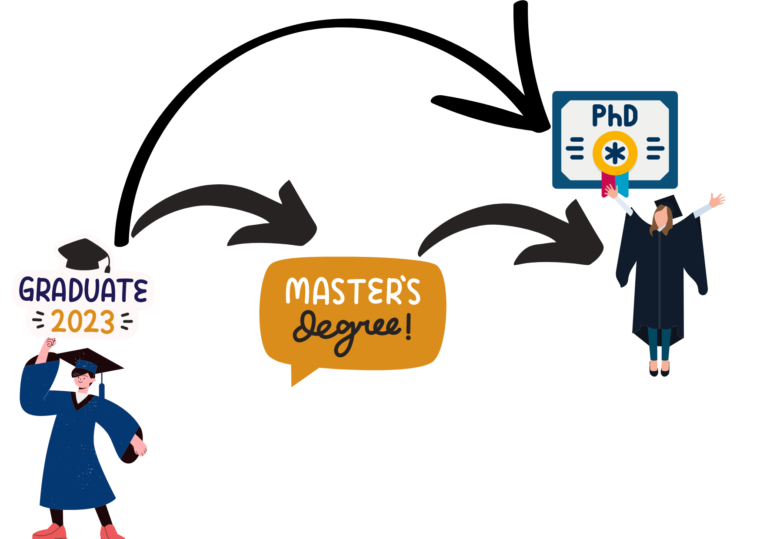
Introduction
What is a direct phd program.
- Pros of Doing a PhD Without a Master's Degree
- Cons of Doing a PhD Without a Master's Degree
- Fields in Which it is More Common to Enter a PhD Program Without a Master's Degree
- Fields in Which a Master's Degree is Often Required for Admission to a PhD Program
- How to Apply for a PhD Program Without a Master's Degree
- Examples of Successful PhD students who did not have a Master's Degree
- Top Universities Offering PhD without Master's Degree
Direct PhD Programmes in United States:
Direct phd programmes in europe:, direct phd programmes in australia:, direct phd programmes in asia:.
During my teaching years at a premier Engineering institute in India, I encountered an intriguing case that shed light on the possibility of pursuing a PhD without a master’s degree.
One day, a former student reached out to me with exciting news. She had successfully cleared the Graduate Aptitude Test in Engineering (GATE), a qualifying exam for admission to postgraduate programs. Even more surprising was her plan to directly join the PhD program at the prestigious Indian Institute of Technology (IIT) Delhi.
Initially, I found this puzzling—how could one step into a PhD without completing a master’s degree? It turned out that such programs do indeed exist at IITs and other esteemed institutions in India and abroad.
Intrigued by this revelation, I delved deeper into the details and later shared this valuable information with many students. Little did I know that this piece of knowledge would significantly benefit aspiring scholars aiming for a direct PhD path.
A PhD, or Doctor of Philosophy, is the highest level of academic degree that one can achieve in many fields. It typically involves several years of intensive research and coursework in a specialized area and completing a dissertation that makes an original contribution to the field. A PhD can lead to many career opportunities, including positions in academia, industry, and government.
The traditional path to a PhD usually involves completing a bachelor’s degree in a related field, followed by a master’s degree before starting the PhD program. The bachelor’s degree provides a broad foundation in the field, while the master’s degree provides more specialized training and research experience that prepares students for the rigours of a PhD program.
However, some students may wonder whether it is possible to skip the master’s degree and go straight into a PhD program. This can be an attractive option for students who want to save time and money, or who have extensive research experience that makes them well-prepared for a PhD program.
In this article, we will explore the pros and cons of doing a PhD without a master’s degree, as well as some examples of successful PhD students who took this route.
A direct PhD program, sometimes referred to as an integrated or combined PhD program, is a doctoral-level academic program that allows students to pursue a PhD degree without first obtaining a master’s degree.
In traditional PhD programs, students typically complete a master’s degree before embarking on their doctoral studies. However, in a direct PhD program, students are admitted directly into the PhD program after completing their undergraduate studies.
Direct PhD programs are often structured to be more streamlined, allowing students to move directly into advanced research and coursework related to their field of study. These programs are typically designed for highly motivated and academically strong students who demonstrate exceptional potential for research and scholarly work.
The specific structure and requirements of direct PhD programs can vary depending on the university and the field of study. In some cases, students may be required to complete additional coursework or examinations to ensure they have the necessary background knowledge and skills for doctoral-level research. However, the overall goal of these programs is to accelerate the process of earning a PhD by allowing students to begin their doctoral studies earlier in their academic career.
Pros and Cons of Doing a PhD Without a Master’s Degree
While it is possible to pursue a PhD without completing a master’s degree, there are several potential advantages and disadvantages to consider.
Pros of Doing a PhD Without a Master’s Degree
- Saving time and money: Completing a master’s degree can add two or more years to the time it takes to earn a PhD, as well as significant tuition costs. Skipping the master’s degree can allow students to complete their PhD more quickly and with fewer expenses.
- Gaining more research experience: Some students may already have extensive research experience, either through undergraduate research opportunities or work in a related field. Skipping the master’s degree can allow these students to continue building on their research skills and contribute to the field more quickly.
Cons of Doing a PhD Without a Master’s Degree
- Lack of preparation in research methodology and theory: Master’s degree programs often provide students with more specialized training in research methods and theoretical frameworks, which can be valuable preparation for a PhD program. Skipping the master’s degree can mean missing out on this preparation and potentially struggling to keep up with the demands of a PhD program.
- Potential challenges in meeting admission requirements: Some PhD programs may require applicants to have a master’s degree or equivalent research experience, which can make it difficult for students who have not completed a master’s degree to be accepted into a PhD program. Additionally, some students may need to complete additional coursework or exams to meet the admission requirements for a PhD program.
- A student who completed a bachelor’s degree in computer science and spent several years working in the industry as a software developer may have gained extensive research experience in a specialized area of computer science. This student may be well-prepared to pursue a PhD in computer science without completing a master’s degree.
- A student who completed a bachelor’s degree in psychology and has some research experience through undergraduate research opportunities may struggle to keep up with the demands of a PhD program in psychology without completing a master’s degree that provides more specialized training in research methods and theoretical frameworks.
Fields in Which it is More Common to Enter a PhD Program Without a Master’s Degree
While it is not uncommon for students to pursue a master’s degree before starting a PhD program, there are some fields where it is more common for students to enter a PhD program directly after completing a bachelor’s degree. These fields include:
- Engineering: In many engineering disciplines, it is common for students to enter PhD programs directly after completing a bachelor’s degree. This is because engineering programs often provide students with extensive research experience and specialized training in research methods and theoretical frameworks that prepare them for a PhD program.
- Natural Sciences: In fields such as biology, chemistry, and physics, it is also common for students to enter PhD programs directly after completing a bachelor’s degree. This is because these fields often require extensive research experience and specialized training in laboratory techniques and scientific methods, which students can gain through undergraduate research opportunities and coursework.
In these fields, students who have completed a bachelor’s degree and have extensive research experience may be well-prepared to pursue a PhD program without completing a master’s degree. However, it is important to note that this may not be the case in other fields, such as the social sciences or humanities, where a master’s degree may be more commonly required or preferred for admission to a PhD program.
It is important for students to research the admission requirements and expectations for PhD programs in their chosen field before deciding whether to pursue a master’s degree or apply directly to a PhD program after completing their bachelor’s degree.
Fields in Which a Master’s Degree is Often Required for Admission to a PhD Program
While it is possible to pursue a PhD without completing a master’s degree, there are some fields where a master’s degree is often required or preferred for admission to a PhD program. These fields include:
- Humanities: In fields such as history, philosophy, and literature, it is common for students to complete a master’s degree before applying to a PhD program. This is because these fields often require extensive coursework and training in research methods and theoretical frameworks, which students can gain through a master’s degree program.
- Social Sciences: In fields such as psychology, sociology, and political science, a master’s degree is often required or preferred for admission to a PhD program. This is because these fields often require specialized training in research methods and statistical analysis, which students can gain through a master’s degree program.
In these fields, students who have completed a bachelor’s degree but do not have a master’s degree may find it difficult to gain admission to a PhD program. This is because PhD programs in these fields often have high admission standards and may require applicants to have completed a master’s degree or equivalent research experience.
- A student who completed a bachelor’s degree in English literature and has some research experience through undergraduate research opportunities may need to complete a master’s degree in order to gain admission to a PhD program in literature. This is because PhD programs in literature often require extensive coursework and training in research methods and theoretical frameworks.
- A student who completed a bachelor’s degree in psychology and has some research experience through undergraduate research opportunities may be able to apply directly to a PhD program in psychology. However, some PhD programs in psychology may require applicants to have completed a master’s degree or equivalent research experience, which could make it difficult for this student to gain admission without completing a master’s degree.
How to Apply for a PhD Program Without a Master’s Degree
While it can be challenging to gain admission to a PhD program without a master’s degree, there are some steps that students can take to increase their chances of success. These steps may include:
- Demonstrating exceptional academic qualifications: Students who have completed a bachelor’s degree with exceptional grades and have a strong academic record may be more likely to be considered for admission to a PhD program without a master’s degree.
- Demonstrating research potential: Students with extensive research experiences, such as through undergraduate research opportunities or independent research projects, can demonstrate their potential for success in a PhD program.
- Completing additional coursework or exams: Some PhD programs may require applicants without a master’s degree to complete additional coursework or exams to demonstrate their readiness for PhD-level work. This may include completing additional courses in research methods, statistics, or theory, or taking qualifying exams to demonstrate mastery of the field.
- A student who completed a bachelor’s degree in physics with exceptional grades and extensive research experience may be able to gain admission to a PhD program in physics without completing a master’s degree. This is because the student has demonstrated exceptional academic qualifications and research potential.
- A student who completed a bachelor’s degree in history and has some research experience through undergraduate research opportunities may need to complete additional coursework or exams to gain admission to a PhD program in history. This is because PhD programs in history often require extensive coursework and training in research methods and theoretical frameworks, which students may not have gained through their undergraduate studies alone.
It is important for students to research the admission requirements and expectations for PhD programs in their chosen field before deciding whether to pursue a master’s degree or apply directly to a PhD program after completing their bachelor’s degree. Students may also want to reach out to professors and advisors in their field to discuss their options and receive guidance on the application process.
Please visit my article on “How to Build a Strong Research Portfolio in 07 Easy Steps” . This article will help you in building a strong research portfolio. Visit my blog post sections on writing research papers for journals and writing research papers for conferences . These articles will help you in writing quality papers for journals and conferences.
Examples of Successful PhD students who did not have a Master’s Degree
While it is less common for students to enter a PhD program without a master’s degree, there are examples of successful PhD students who have done so. These students have demonstrated exceptional academic qualifications, research potential, and perseverance in their programs. Some examples of successful PhD students who did not have a master’s degree include:
- Dr. Jennifer Doudna: Dr. Doudna is a biochemist who won the Nobel Prize in Chemistry in 2020 for her work on the CRISPR-Cas9 gene editing system. She entered a PhD program in biochemistry at Harvard University directly after completing her bachelor’s degree at Pomona College. She completed her PhD in just four years and went on to a successful career in academia and research.
- Dr. Maryam Mirzakhani: Dr. Mirzakhani was a mathematician who won the Fields Medal, often considered the highest honour in mathematics, in 2014. She completed her bachelor’s degree in mathematics in Iran and then entered a PhD program in mathematics at Harvard University without completing a master’s degree. She completed her PhD in just three years and went on to a successful career in academia and research.
- Dr. David Gelernter: Dr. Gelernter is a computer scientist and artist who completed his bachelor’s degree in mathematics and classical Hebrew literature at Yale University. He then entered a PhD program in computer science at the same institution without completing a master’s degree. He completed his PhD in three years and went on to a successful career in academia and research.
These examples demonstrate that it is possible for students to succeed in PhD programs without completing a master’s degree. However, it is important to note that these students had exceptional academic qualifications, research potential, and perseverance and that their success was not guaranteed.
Students who are considering applying to PhD programs without completing a master’s degree should carefully consider their own academic qualifications and research potential and should seek guidance and support from advisors and mentors in their field.
Top Universities Offering PhD without Master’s Degree
While it is less common for universities to offer PhD programs without a master’s degree, there are some prestigious institutions around the world that do accept students into PhD programs without a master’s degree in certain fields. Here are some examples:
- Harvard University, USA : Harvard’s Graduate School of Arts and Sciences allows exceptional students to apply directly to their PhD programs without a master’s degree in fields such as physics, chemistry, mathematics, and computer science.
- Stanford University, USA : Stanford’s School of Engineering offers a direct PhD program for exceptional students in fields such as electrical engineering, computer science, and mechanical engineering, without requiring a master’s degree.
- University of Cambridge, UK : The University of Cambridge’s PhD programs in sciences and engineering fields may admit students without a master’s degree on a case-by-case basis, considering their qualifications and research potential.
- Imperial College London, UK : Imperial College London’s PhD programs in engineering and physical sciences may admit students directly from a bachelor’s degree, based on their qualifications and potential for research.
- ETH Zurich, Switzerland: ETH Zurich, a leading institution in science and engineering, may admit students into their PhD programs without a master’s degree, considering their academic achievements and research potential.
- IIT Delhi, India : a leading institution in engineering, admit students into their PhD programs without a master’s degree, considering their academic achievements and research potential.
It’s important to note that the admission requirements and policies for PhD programs without a master’s degree can vary by institution and field of study and may be subject to change. It’s always recommended to thoroughly research and review the specific requirements of each institution and program you are interested in, and contact the admissions offices for up-to-date and accurate information.
Direct PhD Offered in Various Continents/Countries
- Massachusetts Institute of Technology (MIT)
- California Institute of Technology (Caltech)
- Stanford University
- Harvard University
- Princeton University
- University of Cambridge (UK)
- University College London (UK)
- ETH Zurich (Switzerland)
- Technical University of Munich (Germany)
- University of Amsterdam (Netherlands)
- Australian National University
- University of Melbourne
- University of Sydney
- University of Queensland
- Monash University
- National University of Singapore
- Tsinghua University (China)
- University of Tokyo (Japan)
- Seoul National University (South Korea)
- Indian Institutes of Technology (IITs) – Various campuses in India
These universities, among many others, offer direct PhD programs across a wide range of disciplines including engineering, natural sciences, social sciences, humanities, and more. It’s important to research each program carefully to understand its specific requirements, application process, and available funding opportunities.
Pursuing a PhD without a master’s degree is possible but it is less common and comes with its own set of challenges. In this article, we have discussed the pros and cons of doing a PhD without a master’s degree, fields in which it is more common to enter a PhD program without a master’s degree, and fields in which a master’s degree is often required for admission to a PhD program. We have also provided some advice on how to apply for a PhD program without a master’s degree and shared examples of successful PhD students who did not have a master’s degree.
For students who are considering pursuing a PhD without a master’s degree, it is important to carefully consider their academic qualifications and research potential. They should also seek guidance and support from advisors and mentors in their field, and consider completing additional coursework or exams to prepare for the rigors of a PhD program.
In conclusion, the decision to pursue a PhD without a master’s degree is a personal one and should be made after careful consideration of the individual’s goals, strengths, and weaknesses. We encourage readers to engage with the topic further by researching specific PhD programs and seeking advice from mentors and advisors in their field.
Upcoming Events
- Visit the Upcoming International Conferences at Exotic Travel Destinations with Travel Plan
- Visit for Research Internships Worldwide

Recent Posts
- How to End Your Academic/Research Internship?
- PhD or Industry Job? A Comprehensive Career Guide
- Post Doc Positions in India
- 04 Reasons for Outsourcing Academic Conference Management
- How to Put Research Grants on Your CV ?
- All Blog Posts
- Research Career
- Research Conference
- Research Internship
- Research Journal
- Research Tools
- Uncategorized
- Research Conferences
- Research Journals
- Research Grants
- Internships
- Research Internships
- Email Templates
- Conferences
- Blog Partners
- Privacy Policy
Copyright © 2024 Research Voyage
Design by ThemesDNA.com

2024 Best Universities That Offer PhD Without Masters
It may sound like a dream, but universities that offer PhD without a masters do exist.

Imagine fast-tracking your way to becoming a doctor in your field, skipping the traditional master’s step, and diving straight into deep, meaningful research. This article is your guide to understanding this unconventional yet rewarding path.
Editorial Listing ShortCode:
We’ll explore the ins and outs of taking this leap to help you decide if this bold academic journey aligns with your aspirations and goals.
Universities That Offer PhD without a Masters Degree

Can you get a doctorate without a masters? For some, the answer is yes. In PhD programs without masters requirements, you can start working on your PhD right after earning your bachelor’s degree. This means you can focus on intensive research and specialized studies sooner.
It’s a path that may suit you if you’re keen on deepening your knowledge and expertise without the intermediate step of a master’s program. Typical eligibility criteria for these programs include:
- Strong undergraduate academic record
- Research experience
- Recommendation letters
- Well-crafted statement of purpose
- Standardized test scores (if required)
According to the Bureau of Labor Statistics (BLS) , higher education often leads to better job prospects and higher earnings. This route not only saves time but can potentially set you up for promising career opportunities.
You’ll be expected to start your research early. This could be a great fit if you’re already clear about your academic interests and ready to commit to a rigorous research schedule.
Advantages of Fast-Tracking to PhD
Deciding to go straight for a PhD without a master’s degree can be a big step toward your future goals. Here are some potential benefits for considering PhD online programs without masters requirements:
- Speed up your journey : By skipping a master’s program, you may get to your career goals faster.
- Save money : Like any college program, earning a master’s degree can be expensive.
- Immediately deep dive into your interests : Passionate about your field? You may jump straight into advanced studies and research.
- Unique opportunities : These programs can help open doors to rare and exciting research chances, placing you at the forefront of innovation early in your career.
- Stand out : Earning a PhD is a powerful statement about your ambition and skills.
Stepping directly into a PhD program may allow you to fast-track your ambitions and pave the way to a fulfilling future.
Disadvantages and Challenges of Direct PhD Programs

Jumping into a PhD without a master’s degree takes courage. It’s crucial to know the hurdles that might pop up before you start researching PhD programs online without masters requirements.
These are some challenges you may encounter:
- Rapid pace : You’ll likely face a steep learning curve without the preparation a master’s program can provide.
- Immediate research pressure : You’re expected to start producing original research right away.
- Fewer networking opportunities : Skipping a master’s program means missing out on making those crucial academic connections that may be valuable down the line.
- Tougher funding : Funding opportunities often lean toward those with master’s degrees, so securing financial support might be more challenging.
- Self-doubt : Without the stepping stone of a master’s, you might question if you’re ready for this big leap.
According to the NSCRC , with more people pursuing advanced degrees, the academic world is getting more competitive. Navigating these challenges requires resilience and a clear vision of your goals. Choosing a direct PhD route is about weighing these hurdles against your determination and passion for your field.
How to Choose a Doctorate without a Masters Degree

Choosing the right PhD program is key. Here are some important factors to consider:
- Accreditation : Accreditation is like a quality stamp for the program, ensuring that it meets certain academic standards. You can find more information at the S. Department of Education – Accreditation .
- Financial aid and scholarships : Cost can be a big factor, and having financial aid or scholarships can make a huge difference. You can visit the FAFSA website for more information.
- Faculty expertise : You want to learn from the best and ensure they have experience in your area of interest.
- Research opportunities : This is your chance to get hands-on experience in your field.
- Program structure and flexibility : It’s important to consider class schedules, online vs. in-person options, and the balance between coursework and research.
Choosing the right doctorate program is a personal decision that will shape your academic journey. Taking the time to weigh these factors carefully can help you find the best choice to fit your goals and needs.
Applying to Universities That Offer PhD without a Master’s Degree

Applying for a PhD program is like presenting your academic story. Here are some tips to help make each part of your application a testament to your passion and potential:
- Your research proposal : This is a window into your interests. Show your enthusiasm and readiness for the field by making it clear, engaging, and indicative of your ability to bring fresh ideas.
- Letters of recommendation : These are your personal champions, so choose mentors or professors who know your strengths intimately and can confidently vouch for your PhD readiness.
- Showcase your research journey : Research experience is a crucial part of your narrative. Highlight your involvement in projects, papers, or presentations.
- Ace the interview : Be prepared to discuss your motivations, research interests, and how you envision your growth in the program.
Your application is a holistic reflection of your academic identity. It should showcase your achievements and excitement for research and knowledge.
Do You Need a Masters to Get a PhD?

While many paths to a PhD traditionally start with a master’s, there’s a growing trend of programs allowing students to jump straight into doctoral studies from their bachelor’s programs.
This option may be perfect for those who are clear about their research interests and ready to dive into academic exploration. If you’re passionate, determined, and have a clear vision for your research, a direct route to a PhD may be your path forward.
Universities Offering Online PhD Without Masters Degree Programs
Methodology: The following school list is in alphabetical order. To be included, a college or university must be regionally accredited and offer degree programs online or in a hybrid format.

Capitol Technology University offers a PhD in Technology with two pathways for students who may not hold a master’s degree. Applicants may either already hold a doctoral degree or earn an MS in Research Methods while earning their PhD. CapTech’s program is fully online, and residencies are not required.
Capitol Technology University is accredited by the Middle States Commission on Higher Education.

Clemson University offers a PhD in Healthcare Genetics and Genomics. Applicants must hold at least a bachelor’s degree in a related field with a 3.0 cumulative GPA. Applicants who hold a master’s in the field may be given preference. The program is fully online, and courses are in a synchronous format.
Clemson University is accredited by the Southern Association of Colleges and Schools Commission on Colleges.

Indiana University offers a PhD in Music Therapy through the Purdue School of Engineering and Technology at IUPUI. Students who do not already hold a master’s degree can earn a Master’s in Music Therapy through the program. The program requires the completion of 90 credit hours, including a dissertation, and is fully online.
Indiana University is accredited by the Higher Learning Commission.

Students who do not hold a master’s degree may apply for a PhD in Computer Science through Mississippi State University. The program is fully online and does not require campus visits. Courses follow a semester schedule, and there are start dates in the fall and spring. Applicants are not required to submit GRE or GMAT scores.
Mississippi State University is accredited by the Southern Association of Colleges and Schools Commission on Colleges.
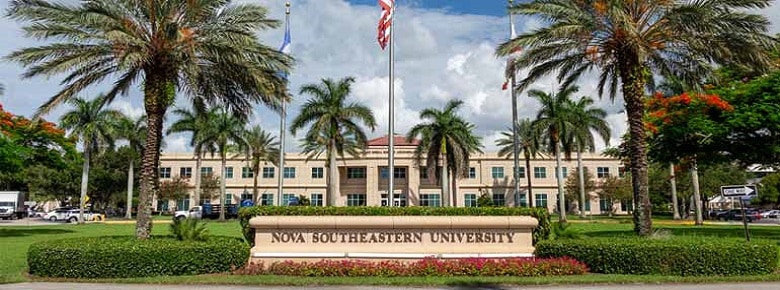
Students who do not hold a master’s may earn a PhD in Computer Science through Nova Southeastern University’s bachelor’s track. The program requires the completion of 66 credits and is available fully online or on campus. The program has start dates in August, January, and May and follows a semester schedule. NSU is an NSA-designated school.
Nova Southeastern University is accredited by the Southern Association of Colleges and Schools Commission on Colleges.

Saybrook University offers a PhD in Clinical Psychology program that is fully online. Students who do not hold a master’s degree must complete 103 to 109 credits to graduate, while those who do have a master’s in a related field must complete 100 to 106 credits.
The program can typically be completed in 5 years. It offers several specializations that may be declared, including Applied Psychophysiology, Creativity Studies, and Jungian Studies.
Saybrook University is accredited by the Senior Commission of Western Association of Schools and Colleges.

The University of Arizona offers a PhD in Nursing to students who hold a BSN through its BSN-to-PhD program. The program is mostly online, but short residencies are required. The program can potentially be finished in 4 years when attended full-time. Courses follow a semester schedule, and the completion of 79 credits is required to graduate.
The University of Arizona is accredited by the WASC Senior College and University Commission.
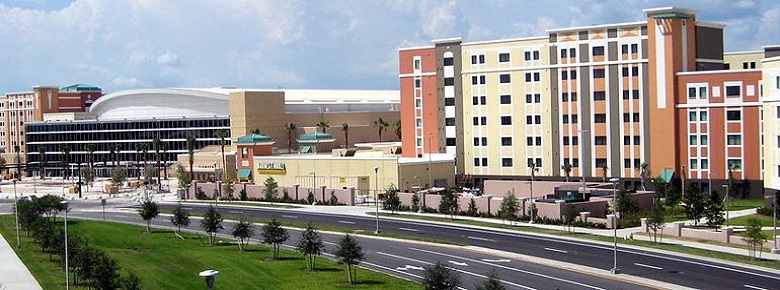
The University of Central Florida offers a BSN-to-PhD in Nursing program for those who do not hold a master’s degree in nursing. All coursework is online, but short intensives on campus are required throughout the program. Applicants are not required to submit GRE scores.
The University of Central Florida is accredited by the Southern Association of Colleges and Schools.

The University of Oklahoma offers a PhD in Nursing with a fast-track to PhD option for students who have a BSN but not a master’s degree. All coursework is fully online. The program can potentially be finished in 36 months, and there are start dates in the fall, spring, and summer. The completion of 78 credits is required to graduate.
The University of Oklahoma is accredited by the Higher Learning Commission.
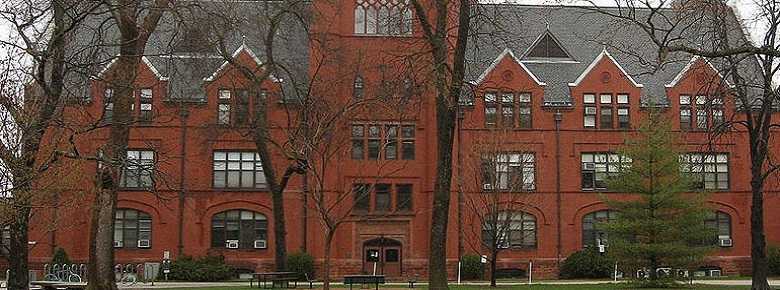
The University of Wisconsin–Milwaukee offers a fully online program for a PhD in Nursing. Students with only a BSN may apply but must complete 15 additional credits before entering the program. The program starts every other year during the summer semester. It can potentially be completed in 3 years.
UWM is accredited by the Higher Learning Commission.
Advance Your Career: Starting Your PhD without a Masters Degree

Starting your PhD journey without a master’s degree can be a bold step forward in advancing your career, particularly if you pursue some of the highest paying doctorate degrees . It’s a path that speaks to those ready to dive into deep academic waters, driven by passion and a clear vision for their future, with the added potential of high financial rewards in cutting-edge and high-demand areas.
If this resonates with you, you can start exploring accredited universities that offer this opportunity, including those providing online PhD programs for working professionals . These flexible programs are designed to accommodate your busy schedule, allowing you to balance your professional responsibilities with your academic pursuits. Your aspirations and determination may fast-track you on your way to becoming an expert in your field!


Guidance from our top admission experts — for free!

- Admit Finder
Discover Past Admits, Gauge Your Chances!
- Shortlist Builder
Personalized University Picks, Just a Click Away.
- Course Finder
Navigate Global Courses Tailored for You
- Scholarship Finder
Unlock Funding Opportunities Worldwide.

Get tailored study abroad advice.

Sign in for exclusive content!

Planning to study abroad?

Build your target shortlist and see your odds of getting into top schools with Ambitio's AI shortlist builder!

Heading Out Already?
Our Ivy League mentors and top admission experts can help with personalized tips to get you into your dream school
6 September 2023
7 minutes read
PhD without a Masters in the USA: A Comprehensive Guide
Key Takeaways:
- Direct Entry to PhD: Many U.S. universities now offer programs allowing students to pursue a PhD directly after completing their bachelor’s degree, bypassing the master’s.
- Time and Cost Efficiency: This pathway saves time and money, reducing the overall duration and cost of higher education.
- Research Focus: Direct PhD programs emphasize intensive research, allowing students to delve deeply into their field of study from an early stage.
- Stringent Criteria: Admission to these programs is competitive, with a strong emphasis on undergraduate academic performance and research experience.
- Varied by Field: Availability and norms of direct PhD programs can vary significantly across different academic disciplines and universities.
In recent years, a paradigm shift has been evident in the academic landscape. The USA, known for its rigorous academic structure, has begun to adapt and transform. Many universities now offer candidates the chance to pursue a PhD without a master’s degree.
Such an option seems tempting for those looking to save time and dive directly into research. This direct entry, or “bachelor’s to PhD,” program is a welcome change for many aspiring scholars.
Worried about the cost of Studying Abroad?
Sign up to access 25 game-changing scholarships that could cover your costs.

- Why the Sudden Shift?
The educational field is dynamic, and constantly evolving based on societal needs and scientific progress. As global challenges become more complex, there’s a demand for in-depth, specialized research.
This means a longer time spent on research rather than course completion. The direct PhD route facilitates just that – more time on research, and less on course study.
Universities Leading the Way
Several top-tier universities are at the forefront of this transition. For instance, a student aiming for a PhD in Computer Science or Bioengineering might find the direct PhD path available, whereas it might not be the case for someone seeking a degree in History or Philosophy . Always ensure you check specific departmental guidelines.
Stuck on How to Pick Your Ideal College?
Sign up to access your tailored shortlist and simplify finding your ideal college.

- Why Consider a PhD Without a Master’s Degree?
The lure of diving straight into research after an undergraduate program has several enticing advantages.
Duration and Costs
The primary advantage for many is the saved time. Traditionally, students spend two years in a master’s program, followed by 4-6 years for a PhD. By opting for a direct PhD, one might shave off a couple of years from their academic journey. This not only translates to saved time but also reduced tuition and associated costs.
Early Start to Research
Starting research early means a more extended period for deep study and the potential to make significant breakthroughs. Additionally, diving directly into research post-bachelors can lead to early publications, making the candidate’s academic profile stronger.
Admission Criteria: Candidates for direct PhD programs must demonstrate academic excellence, particularly in their major-specific courses, and have significant undergraduate research experience.
See how Successful Applications Look Like!
Access 350K+ profiles of students who got in. See what you can improve in your own application!

- Eligibility and Admission Criteria
Jumping from a bachelor’s program to a PhD isn’t a walk in the park. Admission criteria are often more stringent for direct PhD applicants.
Demonstrating Academic Excellence
Universities typically expect a stellar undergraduate academic record, emphasizing strong grades in major-specific courses. It’s also not just about grades – active participation in relevant seminars, workshops, and other academic events can enhance a candidate’s profile.
Research Experience and Recommendations
An essential criterion is demonstrable undergraduate research experience. Potential PhD candidates must have participated in significant research projects and ideally have some publications or research reports to showcase.
Furthermore, having recommendation letters from known figures in the field or previous research supervisors can considerably strengthen an application.
Program Availability: The availability of direct PhD programs varies across disciplines and institutions. For example, fields like Computer Science and Bioengineering at institutions such as MIT and Stanford offer direct PhD options, while other fields and universities might not.

Start Your University Applications with Ambitio Pro!
Get Ambitio Pro!
Begin your journey to top universities with Ambitio Pro. Our premium platform offers you tools and support needed to craft standout applications.
Unlock Advanced Features for a More Comprehensive Application Experience!

Start your Journey today
- Universities Offering Direct PhD Programs
As the appeal of direct PhD programs grows, many universities across the USA have adopted this approach, allowing students to delve into intensive research immediately after their bachelor’s.
However, the offerings and requirements vary from one institution to another, and often from one department to another within the same university. Here’s an expanded look into some of the universities leading the charge and their specific programs:
Massachusetts Institute of Technology (MIT)
MIT has always been at the forefront of innovation, and its approach to graduate studies is no different. Several departments within MIT allow for a direct PhD pathway:
- Biology: The department seeks candidates with a strong foundation in biology and other sciences. Undergraduate research experience is a significant plus.
- Electrical Engineering & Computer Science: This department often values a blend of academic excellence and demonstrable skills, such as coding or design projects.
Stanford University
Stanford is another top-tier institution where certain departments entertain direct PhD applications:
- Chemistry: Aside from a stellar academic record, the department values candidates with laboratory experience and those who’ve contributed to research publications.
- Physics: A strong foundation in physics, proven through coursework, and undergraduate research, often sets successful candidates apart.
University of California, Berkeley (UC Berkeley)
UC Berkeley has a wide array of programs, some of which allow candidates to transition directly from their bachelors:
- Molecular & Cell Biology: Here, the emphasis is on in-depth knowledge of biology and related disciplines. Candidates with research papers or projects often have an edge.
- Environmental Science, Policy, & Management: This interdisciplinary program values candidates with a broad perspective on environmental issues and ideally some fieldwork or research experience.
Princeton University
At Princeton , the blend of traditional academic values with forward thinking has led to the adoption of direct PhD programs in select departments:
- Mathematics: A profound understanding of advanced mathematics, as well as participation in relevant seminars, workshops, or Olympiads, can be beneficial.
- Neuroscience: The department seeks individuals keen on exploring the frontiers of brain science. Laboratory experience, especially with techniques such as fMRI or electrophysiology, can be a plus.
Caltech (California Institute of Technology)
Caltech , renowned for its research contributions, also offers some direct-to-PhD programs:
- Aeronautics: Candidates with a background in engineering, physics, or applied mathematics and a penchant for aerospace studies stand out.
- Biochemistry & Molecular Biophysics: Those with a deep understanding of chemistry and biology, complemented by laboratory experience, are often favored.
Tips for Aspirants
Before diving into the application process:
- Research Thoroughly: Understand the specific requirements of your desired program and department. Some might prioritize academic grades while others may emphasize research experience.
- Engage with Current Students: Connecting with PhD students can provide a clearer picture of what to expect and how to strengthen your application.
- Seek Guidance: From academic advisors to professors, gathering feedback can fine-tune your application, making it more aligned with what the department seeks.
While the option of direct PhD programs is increasingly available, it’s essential to understand that each university and department will have its specific criteria.
Being well-researched, prepared, and proactive can make a significant difference in the application process. The journey might be intense, but the rewards, both intellectual and professional, are profound.
Your gateway to unlocking premier universities! Effortlessly navigate admissions with personalized support and expert guidance. Enroll now and initiate your success story! Enroll in Ambitio Elite
Need-to-Know Before Applying
Before embarking on the application journey, it’s essential to ensure you’re a good fit. Thoroughly research the program, faculty, available resources, and funding opportunities. Getting in touch with current PhD students or alumni can provide invaluable insights.
- Challenges of a Direct PhD Path
Pursuing a PhD immediately after obtaining a bachelor’s degree is undoubtedly a unique and commendable academic route. While there are significant advantages to this path, it’s not without its hurdles.
Let’s delve deeper into the challenges that candidates may face when choosing a direct PhD path and ways to navigate these challenges effectively:
The Intensity of the Learning Curve
Entering a PhD program straight from an undergraduate degree can be a bit of a culture shock for many:
- Depth Over Breadth: While bachelor’s programs typically offer a broad understanding of a field, PhDs require intense specialization. This transition from a general to a highly specialized focus can be demanding.
- Advanced Coursework: Direct PhD students may find themselves in advanced courses with peers who have a master’s under their belt. This can make the initial semesters particularly challenging as they grapple with complex topics without the cushioning of intermediary subjects.
Adapting to the Research Rigor
PhD programs are research-intensive, which is a significant transition from undergraduate studies:
- Research Autonomy: Unlike structured undergraduate lab exercises, PhD research is often self-directed. This requires independent problem-solving, a skill that takes time to cultivate.
- Publication Pressure: There’s an emphasis on producing publishable results in PhD programs. Navigating the world of academic publishing, from selecting suitable journals to responding to reviewer comments, can be a steep learning curve.
Potential Missed Networking Opportunities
A master’s program is more than just academic coursework. It often provides students with a chance to network and form connections:
- Limited Alumni Connections: Going straight to a PhD might mean you miss out on two sets of alumni networks – one from your master’s and one from your PhD.
- Fewer Peer Collaborations: Master’s programs often involve group projects and collaborations, which can lead to long-lasting professional relationships. Direct PhD candidates might need to be more proactive in seeking such collaborative opportunities.
Social and Emotional Adjustments
The personal adjustments and sacrifices inherent in any PhD program can be particularly accentuated in a direct PhD route:
- Younger Peer Group: Being younger than many of your peers might lead to feelings of isolation or imposter syndrome.
- Lack of Break: Many students use the time between a bachelor’s and a PhD for personal development, travel, or gaining industry experience. Jumping straight into a PhD means you’re back in the academic grind without a significant break.
Navigating Financial Complexities
While getting to the finish line faster might seem cost-effective, there are financial considerations:
- Funding Challenges: Some funding opportunities or scholarships might be tailored specifically for master’s students. Direct PhD students need to be more resourceful in seeking financial support.
- Longer Commitment: If you’re self-funding, remember that a PhD is a long-term financial commitment. Ensure you have a clear understanding of costs and potential financial strain.
Strategies for Overcoming Challenges
- Mentorship: Seek out mentors early on, both within and outside your department. Their guidance can be invaluable.
- Networking: Attend conferences, workshops, and seminars to broaden your network and gain exposure to various facets of your field.
- Self-Care: Recognize the signs of burnout and stress. Engage in activities outside academia to maintain a balanced life.
- Open Communication: Discuss your challenges with your PhD supervisor. They can offer guidance, resources, or even adjust your research load if needed.
Opting for a direct PhD path is a commendable and ambitious decision. However, it’s imperative for candidates to be aware of the potential challenges. With foresight, preparation, and the right support system, these hurdles can be effectively navigated, leading to a rewarding academic journey.
Adjusting to the Research Intensity
A PhD program is undeniably intense. The depth of research, long hours in the lab or library, and the pressure to publish can be overwhelming. Candidates who haven’t experienced the intermediary step of a master’s might find this transition especially taxing.
Networking and Building Relationships
One often overlooked benefit of a master’s program is the networking opportunities it presents. Direct PhD students might need to put in extra effort to establish connections in their field, attend conferences, and collaborate on research.
The prospect of pursuing a PhD without a master’s degree in the USA is both exciting and challenging. It offers a unique pathway for ambitious students eager to delve into research.
However, it’s essential to consider all aspects, from advantages to inherent challenges, before making a decision. Research thoroughly, engage with current students, and reflect on your long-term goals to ensure this path aligns with your academic and professional aspirations.
Schedule Your Expert Call Now: Ready to navigate the college application process with ease? Schedule a call with our mentor at your convenience. We’re here to offer personalized solutions and expert guidance.
Is it common to get accepted into a direct PhD program without research experience?
While it’s possible, it’s relatively rare. Research experience is often a significant criterion for acceptance.
Do all universities in the USA offer a direct PhD after a bachelor’s?
No, while the trend is growing, not all universities or departments offer this option. Always check the specific department’s guidelines.
How can I enhance my chances of acceptance for a direct PhD?
Strengthen your profile with solid undergraduate research, obtain strong recommendation letters, and demonstrate clarity in your research goals through your statement of purpose.
Spread the Word!
Share across your social media if you found it helpful

Table of Contents
- • Why the Sudden Shift?
- • Why Consider a PhD Without a Master’s Degree?
- • Eligibility and Admission Criteria
- • Universities Offering Direct PhD Programs
- • Challenges of a Direct PhD Path
- • Conclusion
Build your profile to get into top colleges
Phone Number
What level are you targetting
Almost there!
Just enter your OTP, and your planner will be on its way!
Code sent on
Resend OTP (30s)

Your Handbook Is Waiting on WhatsApp!
Please have a look, and always feel free to reach out for any detailed guidance
Click here to download
Meanwhile check out your dashboard to access various tools to help you in your study abroad journey

Recent Blogs
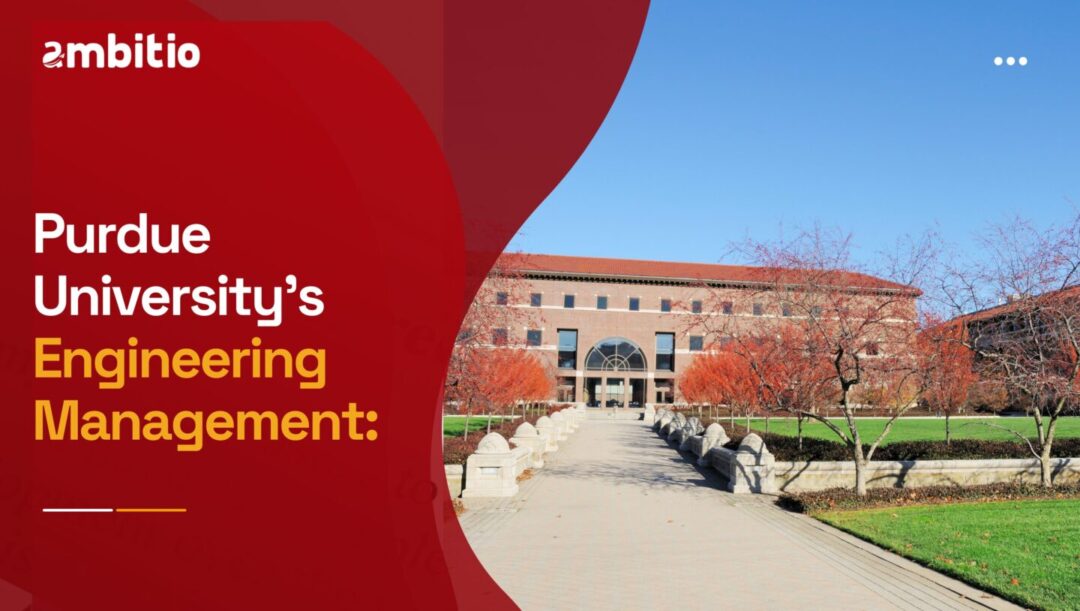
Purdue University’s Engineering Management: GRE, MEM, and MS in Engineering – Insights into Class Profile and IELTS Requirements
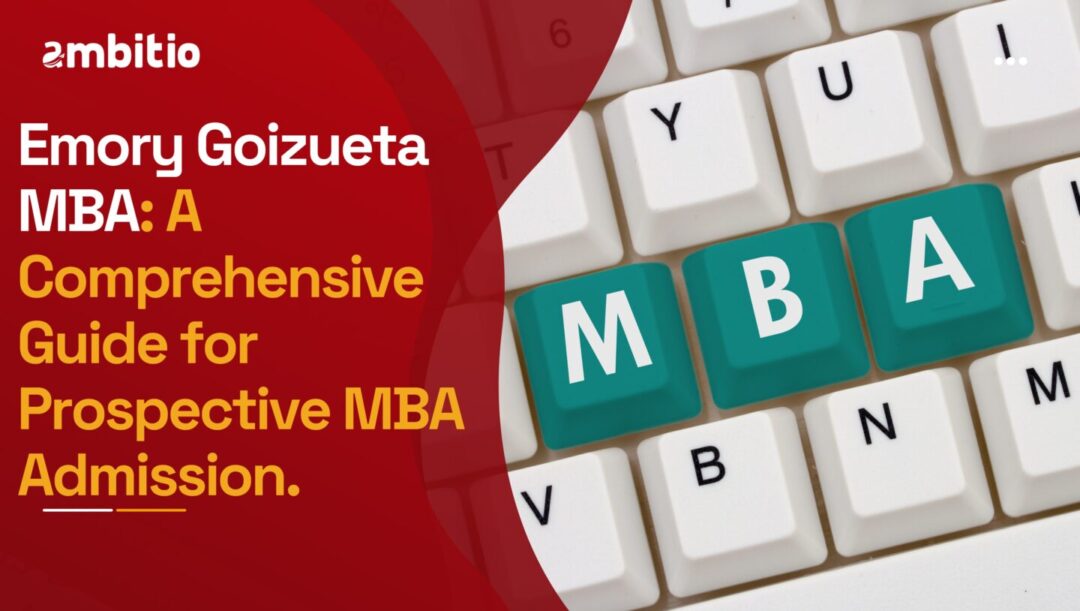
Emory Goizueta MBA Program: A Comprehensive Guide for Prospective MBA Applicants and Admission Insights
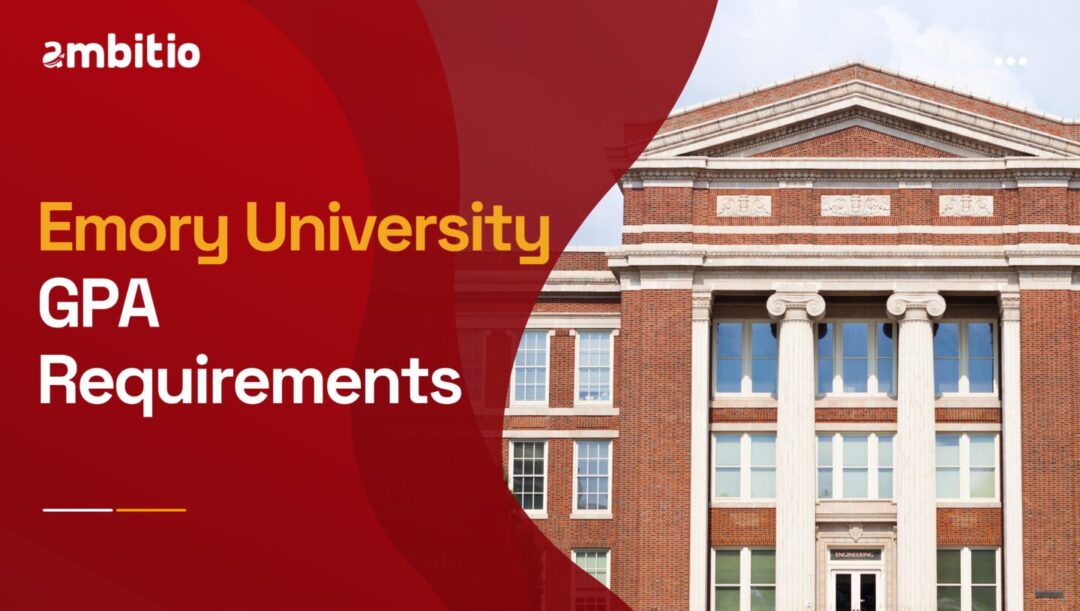
Emory University Admissions: Acceptance Rates, SAT Scores, and GPA Requirements
Find your Dream school now⭐️
Welcome! Let's Land Your Dream Admit.
Let us make sure you get into the best!
- 2024 Winter
- 2024 Spring
- 2024 Summer
Enter verification code
Code was sent to
- Our Experts
Connect with us on our social media

Can you get a PhD without a master’s degree?
Traditionally seen as the pinnacle of academic success, a Doctor of Philosophy (PhD) rigorously prepares you for a career in research and academia that might even earn you the title of “Professor” one day. Getting a PhD is no easy feat, and involves years of gruelling hard work, often with a few life crises and probably thoughts of quitting in between. That said, the question of whether there’s a ‘shortcut’ on how to get a PhD often pops up in student forums and discussions.
Although getting a master’s degree after completing your undergraduate studies is the conventional route taken towards a PhD, you can in fact bypass your master’s degree entirely and go straight into a doctorate programme. Granted, not all subjects or countries have this option, but there’s plenty to go around if you want to save time and money to get your research going.
The University of California, Berkeley , for instance, only admits Bachelor’s degree holders into its political science PhD programme, with a possibility for students to obtain a master’s qualification if they withdraw from the doctoral degree as long as sufficient coursework has been completed. Similarly, you can get a PhD in the Ohio State University’s chemical engineering programme without having done a master’s .
Across the pond, the University of Cambridge can accept students without a master’s degree , where they’ll be placed in a probationary year before progressing into their dissertation. As you can see, various routes are available for direct PhD entry in different fields.
https://twitter.com/elMunir5/status/1495823917986025478
How long does it take to get a PhD?
The doctoral degree is primarily a research degree , where you have to come up with your own original ideas and spend some years of fieldwork, lab work, or any other type of real-world practice that will contribute towards your final dissertation.
If you’re wondering why the US is a bit relaxed in terms of entry requirements, it’s probably because a PhD there is almost never a pure research degree, and generally takes a much longer time to complete as a full-time student than in the UK or Australia.
https://twitter.com/Jamaticulus/status/1495655832045957123
Many US doctorate programmes begin with coursework and assessments in the first two years. After passing an exam, it’s only then that you’ll start working on your research and dissertation. Overall, you’re looking at a time frame of four to six years full-time if you want to get a PhD in an American university.
Compared to anywhere else, you can get a PhD in the US without forking out any for tuition, even for international students. This is because the programmes there tend to be fully-funded , with enough stipend and income from teaching assistantships to cover your cost of living.
Meanwhile, a PhD in Australia or the UK is generally a pure research degree, where you dive headlong into your dissertation topic from the start of your programme. You’ll already be discussing your doctoral thesis with a supervisor in your first year, starting with a literature review and critiquing existing scholarship on your subject before moving on to independent research in the following years. The programme duration is shorter than in the US — a full-time study takes about three to four years.
How can I get a PhD without a master’s degree as an international student?
Full-time PhD programmes in the US are a few years longer compared to other countries. Source: Roslan Rahman/AFP
It goes without saying that being in good academic standing will go a long way in getting into a PhD programme right after your undergraduate studies, but that’s only part of the equation. PhD applications require more paperwork, including a statement of purpose tailored to the university and recommendation letters from your previous instructors that can vouch for your potential as a candidate.
The best way to get into your programme though? Contact the university directly to express your interest and see what funding package is available based on your circumstances. The graduate admissions page will list what is required for application, where you’ll know if you can be admitted with just a bachelor’s degree.
Although skipping a step to get a PhD sounds ideal, you need to assess if you have the capacity to undertake a high-intensity academic life. A master’s degree might cost you an extra year or two, and a few thousand off your account, but it builds a solid foundation for the kind of discipline and knowledge you will need to survive your PhD.
If you do decide to take the plunge, you might want to look out for programmes that can grant you a master’s qualification along the way, so your hard work pays off in case you choose to withdraw from your PhD in the future.
Popular stories
The most prestigious canadian universities in 2024, you’re doing resumes the hard way: 10 best resume-maker apps that are free, fast and easy to use, no coding skills, no problem: these high-paying jobs in ai welcome everyone, the most affordable canadian universities in 2024 that won’t break the bank, is it a good time to be getting a phd we asked those who’ve done it, 10 phd scholarships in the uk for international students 2022, 10 great phd scholarships in the us for international students 2022.

The Savvy Scientist
Experiences of a London PhD student and beyond
Can You Get a PhD Without a Master’s?

If you’re currently studying for your bachelor’s degree and are interested in doing a PhD, you may be wondering: can you get a PhD without a master’s?
The Benefits of Doing a Master’s Degree Before a PhD
A master’s degree allows someone to gain additional skills, research experience and domain-specific knowledge. When a supervisor is looking for potential PhD students, amongst other things they want to see that a candidate has:
- Interest in the subject
- Research experience
- Subject knowledge
Suitability for a PhD does not always require a master’s . But it is a convenient way to provide evidence for your suitability and commitment to research.
Therefore from a supervisor’s perspective, a master’s can provide evidence of these attributes. Having a master’s gives a little more assurance for the supervisor that you’re prepared for the work involved with a PhD. But not having a master’s absolutely does not have to be a barrier!
Already carried out a long research project as part of your bachelor’s degree and want to do a PhD in an area you have knowledge in? You may be able to convince a supervisor that you’re already prepared.
A few less substantial reasons people sometimes consider doing a separate master’s are:
- If for any reason your performance during the bachelor’s degree wasn’t ideal, doing a separate master’s provides another qualification to be assessed against.
- If you’re transitioning to a different research area it is the obvious way to gain knowledge.
- A chance to experience another [potentially more prestigious*] university.
My experience: Early on in your undergraduate degree and interested in doing a PhD? I thoroughly recommend getting as much research experience as possible. Even if you don’t have the opportunity to undertake much research during your course, UROPs are a fantastic way to spend your summer. During my PhD I had help from a few UROP students. One of them has even co-authored a paper with me. I wish that I had done one as an undergraduate!
*I really dislike the idea of considering the prestige of a university and the associated meritocracy , but sadly there is no getting away from the fact that it boosts career prospects.
So Can You Get a PhD Without a Master’s?
If you’re starting to look at PhDs and don’t yet have a master’s, there are two things you can do to get an idea of whether or not you’re likely to need a master’s first:
Check Advertised PhDs
Looking at a PhD advert such as via FindAPhD.com? Check the listed candidate requirements on the advertisement.
Sometimes a master’s isn’t mentioned:

Sometimes doing a master’s is a suggested advantage:

Here is a post detailing how you can find available PhD projects .
Ask the Academic
The most definitive answer you’ll receive for whether you can get a PhD without a master’s will be by contacting supervisors directly.
Often as soon as you start a conversation with potential supervisors they’ll ask to look over a copy of your CV. There is nothing wrong with being bold and checking whether you’re currently qualified enough to stand a competitive chance of getting a PhD.
My experience: When I was considering PhDs I emailed an academic saying I was interested in applying for a project with them but was worried I didn’t have relevant experience. Within 24 hours he had replied saying “Unfortunately, I’m not confident that you’d be selected if you applied as other candidates who have expressed an interest in applying had more relevant experience” Although disappointing, it’s much better to find this out quickly so that you can move on. I already had a master’s but not in a relevant area. If I’d desperately wanted to pursue this research area an obvious means to transition across and gain experience would have been with a master’s.
My Observations
I don’t believe that there are strict guidelines stating that you have to have a master’s. As shown in the adverts above, it is oftenseen as an advantage but is rarely strictly necessary.
Of the people I worked with during my PhD, not everyone had done a master’s.
Most of the people who had a master’s did it as a 4-year integrated master’s. This is common in certain sciences and engineering, and is exactly what I did . However, several people had not done a master’s before starting their PhDs. Including the guy I sat next to for all of my own PhD at Imperial.
Getting a bachelor’s degree outside of the UK will typically take one or two years longer than in the UK. Therefore international students in particular may be able to evidence their experience without a master’s.
Fancy getting a master’s as well as a PhD? Read on to find out how you could get paid to do both!
Don’t Yet Have a Master’s? Consider CDTs!
What are cdts.
In the UK there are many Centres for Doctoral Training (CDTs, sometimes known as DTCs) and it is worth drawing your attention to them if you don’t already have a master’s degree. CDTs offer combined funded Master’s + PhD programmes. You’ll be part of the relatively rare breed getting paid to do a master’s!
These centres are funded via the research councils and provide training for students around a certain theme. FindAPhD.com has a nice post which includes links to funded CDT projects . CDTs cover a huge range of themes. For example just within AI research there are 16 CDTs all for different themes:

The idea is that students from different backgrounds can get training and become proficient at helping to solve problems around the central theme of the CDT. In the first year you’ll have a mix of lectures and smaller projects to get a taste of different research topics. During the first year you’ll also choose your PhD topic. You will then spend three years working on that project before submitting your thesis.
Pros and Cons of CDTs
The advantages are:
- You’re part of a cohort so will likely have a greater sense of community and support versus a typical PhD project
- You get training and will learn new skills before deciding on a PhD project
- If you know you want to work in a certain research area but don’t yet know exactly what project you want to work on yet
- You get both a PhD and a master’s at the end, all of which is funded!
Potential disadvantages I can think of for doing a PhD through a CDT are:
- Taking a year longer than a normal PhD if you already know what you want to work on
- Your PhD position with a certain supervisor isn’t definite before you start. I’ve anecdotally heard of issues where many of the students in the cohort want to work with the same supervisor and of course not all of them can. On the flipside the flexibility in supervisors is an advantage for many.
How much do students earn doing a master’s and PhD through a CDT? Funding for students at CDTs is covered here . UKRI, the body that funds all nine UK research councils , has some case studies of CDT-PhD students which you can find on the various research council websites.
When looking for PhDs, I applied to two CDTs. If I hadn’t already been happy with my offer to study for my specific project at Imperial I’d have loved to have done one. I think they’re a great idea. Particularly if you are transitioning to a research area which differs from the subject of your bachelor’s degree.
Finding Suitable CDTs
As well as using a search engine, you can search for CDTs on FindAPhD.com by selecting PhD Research Programme and then choosing from the list:

Interested in Applying for a PhD?
Hopefully this post shows that you don’t need to be too put off applying for PhDs if you don’t have a master’s. Many people are successful in their PhD application without a master’s if they got research experience during their bachelor’s degree. And if you do fancy getting a master’s and PhD now you know that studying in a CDT could be a great option.
Interested in applying for a PhD? Here is my post covering the PhD applications process. It includes all the steps to apply and tips from successful PhD applicants:
How to apply for a PhD
If you’d like personalised help with your PhD application I am now starting to offer a small number of one-to-one sessions. Please contact me to find out more or click here to book a call.
So can you get a PhD without a master’s? Quite possibly, but a master’s could benefit your application.
Have you got other PhD questions you want answered? Please let me know!
If you’ve found this post useful you can subscribe here to stay notified of new posts:
Share this:
- Click to share on Facebook (Opens in new window)
- Click to share on LinkedIn (Opens in new window)
- Click to share on Twitter (Opens in new window)
- Click to share on Reddit (Opens in new window)
Related Posts

PhD Salary UK: How Much Do PhD Students Get Paid Compared to Graduates?
5th February 2024 5th February 2024

The Benefits of Having a PhD
7th September 2022 30th January 2024

My top PhD regrets: 10 lessons learned by a PhD grad
21st April 2022 25th September 2023
Leave a Reply Cancel reply
Your email address will not be published. Required fields are marked *
Notify me of follow-up comments by email.
This site uses Akismet to reduce spam. Learn how your comment data is processed .
Privacy Overview

PhD Program
Main navigation, phd program in cee.
The Doctor of Philosophy degree is offered under the general regulations of the University as set forth in the Stanford Bulletin. This degree is recommended for those who expect to engage in a professional career in research, teaching, or technical work of an advanced nature in civil or environmental engineering.
A PhD at Stanford requires a minimum of 90 units of graduate study beyond the Masters degree. PhD students who arrive at Stanford with a Masters degree that did not provide adequate background in their area of specialization may be required take additional units beyond this minimum as part of their PhD studies. Students who are directly admitted to the PhD without a Masters degree are required to take a total of 135 units of graduate study. The department requires CEE PhD students arriving without a Masters degree to take sufficient coursework each quarter, until the GQE is completed, to satisfy the requirements for a CEE Masters degree by the end of their 6th non-summer quarter of PhD studies. Once the GQE is completed, steady progress towards the MS is no longer required. PhD candidates should develop individually tailored study plans and expected-progress timetables in consultation with their thesis advisors.
- Request Information
- Find Faculty & Staff
- Industry Partnerships
- Current Students
- Faculty & Staff
- Talent Recruiters
- Search Open Search Close Search
- Message from Dean
- College Leadership
- Quick Facts
- Diversity and Inclusion
- Accreditation
- Faculty & Staff Directory
- Academic Programs
- Academic Departments
- Undergraduate Studies
- Graduate School of Engineering
- Business, Entrepreneurship and Leadership
- Co-op & Experiential Learning
- Clubs & Organizations
- Research Centers & Institutes
- Research Facilities
- Publications & Patents
- Industry Partnership
- Student Research
- Honors & Distinctions
- Annual Reports
- Faculty Hiring
- In the Media
- Spotlight Stories
Graduate Engineering Programs for Non-Engineering Backgrounds
Information systems.
Applicants with any science, engineering, or other technical major are acceptable as long as the candidate provides evidence of technical or programming skills.
Information Systems Program
Information Systems-Bridge
Students with non-STEM, non-technical bachelor’s degrees have the opportunity to earn a Master of Science in Information Systems (MS in IS) with Northeastern’s MS in Information Systems-Bridge program. Current students come from over 24 non-STEM/non-technical bachelor degree backgrounds. No pre-Calculus or higher level math required. No programming background required.
Information Systems-Bridge Program
Bioengineering
Any engineering or science degree (e.g. Biology, Chemistry) are acceptable
Bioengineering Program
Chemical Engineering
Biology or Chemistry undergraduate degrees are acceptable
Chemical Engineering Program
Climate Science and Engineering
This is a joint Master’s program between the College of Science and the College of Engineering and is open to any student with a science or engineering background seeking foundational knowledge in the climate system, its changing dynamics and impacts, and solutions for mitigation and adaptation.
Climate Science and Engineering Program
Data Analytics Engineering
Applicants who hold a Bachelor’s degree in any of the following fields are academically qualified for admissions consideration: Applied mathematics, mathematics, statistics, physics, chemistry, computer science, or quantitative business (e.g. economics, finance, information systems)
Data Analytics Engineering Program
Energy Systems
Energy Systems applicants with quantitative business or finance majors are acceptable if candidates also have some background in computer science and calculus.
Energy Systems Program
Energy Systems Academic Link
The Master of Science in Energy Systems – Academic Link program enables students with first-year calculus, physics and chemistry in their undergraduate studies, but no prior exposure to thermo-sciences to complete the multidisciplinary energy systems program with integrated, foundational coursework.
Energy Systems Academic Link Program
Engineering Management
Mathematics or physics majors with linear algebra and multivariable calculus, or students of any major with the equivalent background in mathematics as an engineering major are acceptable.
Engineering Management Program
Engineering and Public Policy
This program is designed to build proficiency in the skills and knowledge needed to serve as policy leaders on large engineering issues in the public and private sectors. Students can be from any science or engineering major, or from other majors with a background in quantitative analysis, such as public policy, architecture and urban planning, business, economics, or environmental studies.
Engineering and Public Policy Program
Mechanical Engineering
Applicants with majors in applied physics are acceptable
Mechanical Engineering Program
Operations Research
Majors in any science discipline including computer science and mathematics are acceptable; other majors considered are economics, business, or other liberal arts with some background in calculus and linear algebra
Operations Research Program
Sustainable Building Systems
Applicants with any engineering or science degree are acceptable; candidates with degrees in architecture and other related fields, or who have some background in the built environment are also considered for admission on a case-by-case basis.
Sustainable Building Systems Program
Certificate in Sustainability Engineering
This certificate allows non-engineering graduate students to complement their degree program with foundational technical vocabulary, concepts, and skills that will enhance collaboration and solution generation as part of multidisciplinary teams tackling challenges related to sustainability and climate issues. This program is open to students of any major, however, a background in college-level mathematics, such as statistics or quantitative analysis, is necessary.
Sustainability Engineering Certificate
Telecommunication Networks
Applicants with majors in mathematics, physics, or computer science are acceptable
Telecommunication Networks Program

Departments
- Applied Physics
- Biomedical Engineering
- Center for Urban Science and Progress
- Chemical and Biomolecular Engineering
- Civil and Urban Engineering
- Computer Science and Engineering
- Electrical and Computer Engineering
- Finance and Risk Engineering
- Mathematics
- Mechanical and Aerospace Engineering
- Technology, Culture and Society
- Technology Management and Innovation
Degrees & Programs
- Bachelor of Science
- Master of Science
- Doctor of Philosophy
- Digital Learning
- Certificate Programs
- NYU Tandon Bridge
- Undergraduate
- Records & Registration
- Digital Learning Services
- Teaching Innovation
- Explore NYU Tandon
- Year in Review
- Strategic Plan
- Diversity & Inclusion
News & Events
- Social Media
Looking for News or Events ?
Civil Engineering, Ph.D.

- Request Information
Growing and established cities are continually meeting new infrastructure needs and maintaining older systems, such as highways, bridges, and airports. The School of Engineering's Ph.D. in Civil Engineering program produces graduates dedicated to enriching the field. Research-oriented and focused on the latest developments in the discipline, our program readies you for civil engineering research careers in the private sector. It also prepares you to teach at the university level, ensuring the most recent advancements in the field are shared with a new generation of civil engineers.
Concentrations
As a Ph.D. candidate, you will choose to concentrate in 1 of these sub-disciplines:
- structural materials and engineering
- geotechnical and geo-environmental engineering
- environmental and water resources engineering
- construction management and engineering
- highway and traffic engineering
- urban infrastructure systems
Other focus areas are possible and can be developed with the assistance of faculty advisers. All subject areas must be relevant to the degree sought, and a faculty member must be willing and able to guide your research.

Abu Dhabi Global Fellow Program

Urban Science Doctoral Track
- Admission to this program requires an MS in Civil Engineering or equivalent with a GPA of 3.5 or better (on a 0-4 scale).
- GRE scores are required for all full-time Ph.D. applicants.
- Foreign applicants must take the TOEFL examination and submit the results for consideration.
In criteria 1 and 2 above, the “equivalent" can be achieved in several ways. You may have an MS degree with a different title that covers substantially the same material. In more general terms, you must demonstrate that you have the equivalent of all undergraduate and masters-level coursework to be able to pursue doctoral-level work in the chosen major area, as well as in a minor area within the umbrella of civil engineering. Further, “equivalence” is evaluated based on the totality of your undergraduate and graduate record, not course-by-course. Thus, if you wish to pursue doctoral work in Environmental Engineering, for example, you must have the entire undergraduate and masters-level course background expected in Environmental Engineering, but you do not need to demonstrate such a background in structures.
Because admission to a Ph.D. program requires a relevant MS (or equivalent), applicants who have not yet achieved a master’s degree would normally be admitted as MS students. They are expected to earn an MS degree while completing their major and minor course requirements. In rare cases, an applicant with only a BS degree may be directly admitted into the Ph.D. program with the written approval of the department head.
Find out more about Admission Requirements .
A maximum of 48 credits of approved graduate work may be transferred and applied to your degree requirements. They would be awarded on a course-by-course basis or by the transfer of an MS degree from another institution in satisfaction of 30 graduate credits. The latter requires a recommendation from the department’s Graduate Committee and the approval of the department head. Transfer credits must be approved by the academic adviser, the graduate coordinator, and the department head.
Every Ph.D. student upon admission is assigned an academic adviser, who is designated by the department head. Any member of the civil engineering faculty may be an academic adviser to a Ph.D. student. The first meeting should take place shortly after receiving an acceptance letter from the Admissions Office. During this first meeting the student’s Program of Study should be established. The Program of Study should include a list of the fundamental and advanced topics that will comprise the specific courses, the subject matter for the qualifying exam and possible research areas.
Program Requirements
Before becoming a candidate for the Ph.D., you must pass a qualifying examination.
Immediately after you pass your qualifying exam, a Dissertation Committee will be formed. This panel of experts will guide your course of study and research work. You are required to submit and present a dissertation proposal. The culmination of your Ph.D. work will be the defense of the final draft of your dissertation. There are important requirements involved in the qualifying examination and dissertation processes. One of these requirements is that your defense of the final draft of your dissertation must take place in-person at the Brooklyn Campus.
Quick Links
- Graduate Admissions
Academic Director
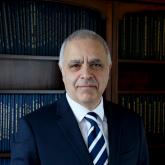
Mohsen Hossein

Cristian Vimer

Siyuan Xiang
- Undergraduate
- Postdoctoral Programs
- Future Engineers
- Professional Education
- Open Access
- Global Experiences
- Student Activities
- Leadership Development
- Graduate Student Fellowships
Aeronautics and Astronautics
Biological engineering, chemical engineering, civil and environmental engineering, electrical engineering and computer science, institute for medical engineering and science, materials science and engineering, mechanical engineering, nuclear science and engineering.
- Industry Collaborations
- Engineering in Action
- In The News
- Video Features
- Newsletter: The Infinite
- Ask an Engineer
- Facts and Figures
- Diversity, Equity & Inclusion
- Staff Spotlights
- Commencement 2023
We tackle problems — the harder, the better — and we generate solutions.
Graduate study is not for the faint-hearted, but the rewards match the risks. When it is your job to generate knowledge, you need to go where no one has gone before. And, we’ll give you what you need to get there.
From the day they step on campus, our grad students are not afraid to go after the hardest problems. Even the ones that might take a miracle (or two) to realize, like practical fusion and imaging black holes .
In the end, it is our students who show us where the most important problems are — and how to solve them.
But you don’t need to take our word for it. Our grad students revel in telling their stories — the amazing days, the challenging days, and of course, where to score free food.
https://engineering.mit.edu/wp-content/uploads/2016/10/square_AeroAstro.jpg

Shape the next century of flight.
https://engineering.mit.edu/wp-content/uploads/2016/12/square_BE.jpg

Crack the code of biology.
https://engineering.mit.edu/wp-content/uploads/2016/12/square_cheme.jpg

Put molecules into action.
https://engineering.mit.edu/wp-content/uploads/2016/12/square_CEE.jpg

Create smarter, better, faster infrastructures.
https://engineering.mit.edu/wp-content/uploads/2016/12/square_EECS.jpg

Design, invent, or hack digital technologies.
https://engineering.mit.edu/wp-content/uploads/square_imes2.jpg
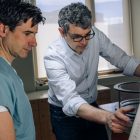
Go from the lab bench to the patient bedside.
https://engineering.mit.edu/wp-content/uploads/2016/12/square_DMSE.jpg

Redefine the material world.
https://engineering.mit.edu/wp-content/uploads/2016/12/square_meche.jpg

Be at the heart of the maker movement.
https://engineering.mit.edu/wp-content/uploads/2016/12/square_NSE.jpg

Advance nuclear technologies.

Study Abroad Aide
The Best Study Abroad Site
15 Free and Cheap Universities in Moscow for International Students
In Moscow, there are a lot of affordable universities that you can find. Enrolling in these schools will help you fulfill your dream of studying in Russia without paying a lot. These institutions also provide well-rounded academic programs and curriculums, allowing students to earn a degree with less burden on their pockets.
Now, if you’re planning to study in Moscow , you’ll have a lot of school options, as they are home to 59 universities . But if you’re looking for cheap universities in Moscow, make sure to read more!
How do I get admission to affordable universities in Moscow?
Applying to cheap universities in Moscow requires you to complete different requirements depending on your degree and chosen university. These usually include admission forms, language proficiency scores, and a visa. Check out our full guide to studying in Russia for a more comprehensive guide!
What can I study at Best affordable universities in Moscow?
International students can study a variety of programs at the undergraduate and graduate levels in Moscow. For example, one of the best affordable schools in Moscow is the Moscow Automobile and Road Construction State Technical University , which offers Environmental Engineering, Staff Management, and Transportation Technologies to students seeking a bachelor’s degree. At the master’s level, the I.M. Sechenov First Moscow State Medical University offers Public Health, Biotechnology, and Biology.
Cheap Bachelor's Colleges and Universities in Moscow for International Students
Here is the list of affordable institutions in Moscow ordered by their tuition fee for international bachelor's students.
* Average Bachelor’s International Tuition is 221,200 RUB for universities in Moscow.
1. Moscow Polytechnic University
- International Bachelor's Tuition: 0 RUB to 290,200 RUB
- Domestic Bachelor's Tuition: 0 RUB to 290,200 RUB
- Moscow Polytechnic University Admissions Pages
- Moscow Polytechnic University Tuition Pages
Established in 1865, Moscow Polytechnic University, or Moscow Poly, is one of Russia’s educational institutions that provide technology-related programs. Currently, they deliver education to more than 16,000 local and international students. As they provide top-quality education and research in various fields, they also have various activities on campus to foster diversity.
2. Moscow International University
- International Bachelor's Tuition: 31,200 RUB to 264,000 RUB
- Domestic Bachelor's Tuition: 31,200 RUB to 264,000 RUB
- Moscow International University Admissions Pages
- Moscow International University Tuition Pages
Moscow International University ensures that students are being taught with a combination of theory and practice. It allows students to experience modern practical approaches that give them the opportunity to be creative in their respective fields and to achieve the ultimate foundation that reflects on their professionalism. The university follows global standards and deeply connects with international organizations.
3. Moscow Region State University
- International Bachelor's Tuition: 73,500 RUB to 340,000 RUB
- Domestic Bachelor's Tuition: 73,500 RUB to 340,000 RUB
- Moscow Region State University Admissions Pages
- Moscow Region State University Tuition Pages
The Moscow Region State University was established in 1931 in the region of Moscow, which is the official capital city of Russia. This university is very famous in the region because of its affordable prices that are established for every level of study. Some of the best directions a student can choose at this university are mathematical education, physics education, and professional education. Another attraction point for this university is the fact that they introduce innovative programs and concepts from which students can take advantage and become experts in their chosen fields.
4. Moscow City Teachers’ Training University
- International Bachelor's Tuition: 107,150 RUB to 164,350 RUB
- Domestic Bachelor's Tuition: 107,150 RUB to 164,350 RUB
- Moscow City Teachers’ Training University Admissions Pages
- Moscow City Teachers’ Training University Tuition Pages
Moscow City Teachers’ Training University is a public university in Moscow, Russia. The Ministry of Education established it in 1995 as a pedagogical university, with only 1300 students in its first year. The university currently has over 18,000 students and offers degree programs in the humanities, natural sciences, sports technology, law, business, and language studies.
5. Russian State Social University
- International Bachelor's Tuition: 142,800 RUB to 301,563 RUB
- Domestic Bachelor's Tuition: 142,800 RUB to 301,563 RUB
- Russian State Social University Admissions Pages
- Russian State Social University Tuition Pages
The Russian State Social University is a distinguished university in the country of Russia because it provides all levels of study to both domestic and international students with the opportunity to gain various financial aid through university or state-funded scholarships. This university is located in Moscow and was founded in 1991, but it is making its way slowly toward the ranking of the best universities in Russia.
6. Moscow Information Technology University – Moscow Institute of Architecture and Civil Engineering
- International Bachelor's Tuition: 164,000 RUB to 187,000 RUB
- Domestic Bachelor's Tuition: 164,000 RUB to 187,000 RUB
- Moscow Information Technology University – Moscow Institute of Architecture and Civil Engineering Admissions Pages
- Moscow Information Technology University – Moscow Institute of Architecture and Civil Engineering Tuition Pages
Moscow Information Technology University – Moscow Institute of Architecture and Civil Engineering, or MITU-MASI, is a university that allows extramural, full-time, and part-time learning modes for students. All students may apply for Preparatory courses, Bachelor’s degrees, and Master’s degrees. Preparatory and special courses can also be undertaken by these students. The university promises quality education, multiple extracurricular opportunities, and strong international connections.
7. Moscow State Pedagogical University
- International Bachelor's Tuition: 170,000 RUB to 400,000 RUB
- Domestic Bachelor's Tuition: 170,000 RUB to 400,000 RUB
- Moscow State Pedagogical University Admissions Pages
- Moscow State Pedagogical University Tuition Pages
Moscow State Pedagogical University is a Russian higher education institute that offers Bachelor’s, Master’s, and Doctoral programs. It was established as the Women’s Courses of Higher Education in 1872 and underwent a transformative journey to what it is now. The university is well-recognized with International Partners across the globe, such as the University College of Teacher Education Vienna in Austria, the University of Pardubice in the Czech Republic, and the CY Cergy Paris University in France. Accessibility is a forefront advocacy with dedicated institutes for it, such as the Center for Student Disability Services and Psychological Assistance Center.
8. Russian New University
- International Bachelor's Tuition: 178,800 RUB
- Domestic Bachelor's Tuition: 178,800 RUB
- Russian New University Admissions Pages
- Russian New University Tuition Pages
Russian New University has branches in over 21 cities in the country, offering adequate educational opportunities for students regardless of their gender and race. The university is proud of its diverse learning environment, which is composed of various institutes, research facilities, and training laboratories. It follows a teaching method that enhances not just the theoretical foundation of students but also their critical and practical skills.
9. N.R.U. Moscow Power Engineering Institute
- International Bachelor's Tuition: 179,292 RUB to 344,358 RUB
- N.R.U. Moscow Power Engineering Institute Admissions Pages
- N.R.U. Moscow Power Engineering Institute Tuition Pages
N.R.U. Moscow Power Engineering Institute is a public technical university in Moscow with a prominent reputation for producing outstanding scientists and engineers for more than 90. It is also one of the most sought-after universities for aspiring engineers from around the world. The university also has numerous cooperation agreements with foreign universities and companies for its students and faculty to participate in different international programs and activities.
10. Moscow University for the Humanities
- International Bachelor's Tuition: 202,000 RUB to 258,000 RUB
- Domestic Bachelor's Tuition: 202,000 RUB to 258,000 RUB
- Moscow University for the Humanities Tuition Pages
The Moscow University for the Humanities is a private university in Moscow, Russia. It was founded in 1944 as the Central Komsomol School, but it was only in 2003 that it was designated as a university. As one of the country’s leading classical universities, the university provides affordable tuition, a cultural center for performing arts, and a sports center for a variety of sports activities.
11. National University of Science and Technology MISIS
- International Bachelor's Tuition: 209,500 RUB to 251,000 RUB
- Domestic Bachelor's Tuition: 209,500 RUB to 251,000 RUB
- National University of Science and Technology MISIS Admissions Pages
- National University of Science and Technology MISIS Tuition Pages
The National University of Science and Technology MISIS started as a mining academy and then became a steel institute. Over time, it expanded its course offer and modernized its facilities, but it’s still widely known for its programs in metallurgy and mining. Nowadays, the university has six campuses, 8 academic colleges, and multiple research institutes. They also have cutting-edge specialized laboratories in fields such as nanomaterials, cryoelectronic systems, biophysics, casting technologies, and much more!
12. Moscow Automobile and Road Construction State Technical University
- International Bachelor's Tuition: 213,900 RUB
- Domestic Bachelor's Tuition: 213,900 RUB
- Moscow Automobile and Road Construction State Technical University Admissions Pages
- Moscow Automobile and Road Construction State Technical University Tuition Pages
Established in 1930, Moscow Automobile and Road Construction State Technical University (MADI) is a specialized institute that leads in providing study programs in transportation, road and airport construction, traffic safety management, logistics and transport, and economics. It offers advanced and innovative educational courses at the undergraduate, master’s, doctoral, and postgraduate levels. Graduates of the school are guaranteed to acquire fundamental knowledge and skills deemed necessary for their future careers.
13. Russian State Geological Prospecting University
- International Bachelor's Tuition: 222,800 RUB to 290,260 RUB
- Domestic Bachelor's Tuition: 222,800 RUB to 290,260 RUB
- Russian State Geological Prospecting University Admissions Pages
- Russian State Geological Prospecting University Tuition Pages
One of the oldest universities in Russia, Russian State Geological Prospecting University was founded in 1918 as Sergo Ordzhonikidze Russian State University for Geological Prospecting. It was first made for Russian students only and was opened to students from abroad in 1931. All students may study programs at Bachelor, Master, or Doctoral levels. Six faculties exist in the university, covering multiple disciplines of study. All students are provided accessible services, but foreign students are advised to get a health insurance plan.
14. RUDN University
- International Bachelor's Tuition: 235,710 RUB to 370,220 RUB
- Domestic Bachelor's Tuition: 236,500 RUB to 342,199 RUB
- RUDN University Admissions Pages
- RUDN University Tuition Pages
RUDN University is one of the best universities in the capital city of Russia and is known as The People’s Friendship University of Russia. This higher education institution is mostly known for the high number of international students attracted to this university’s high ranking. The university is ranked among the world’s top 500 universities, which speaks volumes about the level of study this university provides.
15. Russian State University of Physical Culture, Sport and Tourism
- International Bachelor's Tuition: 243,500 RUB to 317,200 RUB
- Russian State University of Physical Culture, Sport and Tourism Admissions Pages
- Russian State University of Physical Culture, Sport and Tourism Tuition Pages
Russian State University of Physical Culture, Sport, and Tourism is a leading sports university in Russia. It was established in 1918 and is known for producing over 200 outstanding athletes that have made their marks in prestigious international competitions such as the Olympics. The academic and research programs at the university are conducted by highly qualified and reputable coaches, experts, and scientists to further enhance athlete training and prepare future sports champions and professionals.
Cheap Master's Colleges and Universities in Moscow for International Students
Here is the list of affordable institutions in Moscow ordered by their tuition fee for international master's students.
* Average Master’s International Tuition is 260,300 RUB for universities in moscow.
- International Master's Tuition: 0 RUB to 269,000 RUB
- Domestic Master's Tuition: 0 RUB to 269,000 RUB
If you're looking to save the most on your graduate studies abroad, Moscow Polytechnic University should be at the top of your list. International students here pay only 0 RUB to 269,000 RUB annually for their master's degree.
2. I.M. Sechenov First Moscow State Medical University
- International Master's Tuition: 21,800 RUB to 318,000 RUB
- Domestic Master's Tuition: 21,800 RUB to 318,000 RUB
- I.M. Sechenov First Moscow State Medical University Admissions Pages
- I.M. Sechenov First Moscow State Medical University Tuition Pages
I.M. Sechenov First Moscow State Medical University or usually referred to as Sechenov University was founded in 1758, making it the oldest medical school in Russia. It was initially the medical faculty of the Imperial Moscow University and eventually became independent in 1930. At present, the university has more than 18,000 total enrollment and offers undergraduate to Ph.D. programs in Medicine, Sciences, and Professional Education.
3. Moscow International University
- International Master's Tuition: 31,200 RUB to 264,000 RUB
- Domestic Master's Tuition: 31,200 RUB to 264,000 RUB
The tuition fee at Moscow International University for incoming international master’s students is 31,200 RUB to 264,000 RUB. With its cheap rates, you can guarantee you’ll get a quality education without breaking the bank!
4. Moscow Region State University
- International Master's Tuition: 90,000 RUB to 408,000 RUB
- Domestic Master's Tuition: 90,000 RUB to 408,000 RUB
Another affordable university to consider in Moscow is Moscow Region State University.
The tuition fee in Moscow Region State University for master’s program for foreign students starts from 90,000 RUB.
5. Moscow City Teachers’ Training University
- International Master's Tuition: 107,700 RUB to 165,500 RUB
- Domestic Master's Tuition: 107,700 RUB to 165,500 RUB
Aside from its outstanding quality of education, Moscow City Teachers’ Training University has some of the lowest tuition fee prices for foreign students who are planning to take a master's degree here. International master's students only pay as low as 107,700 RUB yearly.
6. Russian State Social University
- International Master's Tuition: 119,000 RUB to 335,938 RUB
- Domestic Master's Tuition: 119,000 RUB to 335,938 RUB
7. Moscow Information Technology University – Moscow Institute of Architecture and Civil Engineering
- International Master's Tuition: 179,000 RUB to 187,000 RUB
- Domestic Master's Tuition: 179,000 RUB to 187,000 RUB
- International Master's Tuition: 193,000 RUB
- Domestic Master's Tuition: 193,000 RUB
- International Master's Tuition: 198,800 RUB to 374,551 RUB
- International Master's Tuition: 218,000 RUB
- Domestic Master's Tuition: 218,000 RUB
11. National Research University Higher School of Economics
- International Master's Tuition: 220,000 RUB to 450,000 RUB
- National Research University Higher School of Economics Admissions Pages
- National Research University Higher School of Economics Tuition Pages
The National Research University Higher School of Economics, or otherwise known as HSE University, is one of the best universities of higher education in the capital city of Russia. This institution has one of the largest campuses in the country that houses approximately 50,000 students and can provide them with all the necessary equipment for them to have the best possible experience.
- International Master's Tuition: 229,400 RUB
- Domestic Master's Tuition: 229,400 RUB
13. National University of Science and Technology MISIS
- International Master's Tuition: 230,000 RUB to 357,600 RUB
- Domestic Master's Tuition: 230,000 RUB to 357,600 RUB
14. Saint Tikhon’s Orthodox University
- International Master's Tuition: 230,490 RUB
- Domestic Master's Tuition: 230,490 RUB
- Saint Tikhon’s Orthodox University Admissions Pages
- Saint Tikhon’s Orthodox University Tuition Pages
Saint Tikhon’s Orthodox University is a private theological university in Moscow, Russia. It was founded in 1991 by Orthodox missionaries who offered evening theology classes, and it received state accreditation as a university in 1992. Degree programs are available in theology, history, education, missionary practice, religious art, and music at the university.
15. Kutafin Moscow State Law University
- International Master's Tuition: 240,000 RUB to 450,000 RUB
- Domestic Master's Tuition: 240,000 RUB to 450,000 RUB
- Kutafin Moscow State Law University Tuition Pages
Kutafin Moscow State Law University is one of the prominent law schools in the country. The university has been the home of more than 150,000 lawyers since its establishment. It has become popular because of its practical-oriented academic training that allows students to have strong theoretical knowledge and sound ethical values.
It's important to take a look at all your options when selecting where to attend post-secondary school. With so many different types of schools, degrees, and universities in Moscow, it can be tough to know where to start looking.
So, make sure to explore the best public universities in Moscow as well if you're looking for affordable education!
Courses by Degree
- Undergraduate
- Master’s
Courses by Country
- United Kingdom
Courses by Subject
- Computer Science
- Data Science
- Hospitality and Tourism Management

IMAGES
VIDEO
COMMENTS
PhD without a Masters - How Does It Work? To be considered for a PhD without a Master's, at a minimum you will be expected to have a Bachelors degree. For students looking to enrol onto a STEM (Science, Technology, Engineering and Maths) PhD, a relevant Bachelors in a 3-year undergraduate course is usually expected.
University of Illinois at Urbana-Champaign. University of Michigan - Ann Arbor. Yale University. While pursuing a PhD without a master's degree may seem like a daunting task, it can be a great option for those who are passionate about their field of study and want to dive deeper into research.
A direct PhD program, sometimes referred to as an integrated or combined PhD program, is a doctoral-level academic program that allows students to pursue a PhD degree without first obtaining a master's degree. In traditional PhD programs, students typically complete a master's degree before embarking on their doctoral studies.
Saybrook University offers a PhD in Clinical Psychology program that is fully online. Students who do not hold a master's degree must complete 103 to 109 credits to graduate, while those who do have a master's in a related field must complete 100 to 106 credits. The program can typically be completed in 5 years.
The short answer is that it is possible to do a PhD without a Masters. The long answer is that it is dependent on your personal experience, your subject area, the duration of your PhD programme and the location, as requirements can vary by country. It's technically possible in any discipline, but much more common in STEM or vocational subjects.
The primary advantage for many is the saved time. Traditionally, students spend two years in a master's program, followed by 4-6 years for a PhD. By opting for a direct PhD, one might shave off a couple of years from their academic journey. This not only translates to saved time but also reduced tuition and associated costs.
Jan 25, 2024. Yes, it is possible to earn a PhD without a master's degree. Though the traditional path entails completing a master's program before embarking on a doctorate, some schools and programs offer options to skip the master's entirely. Actually, in select cases, it's the preferred approach. Below, we'll share four common ...
Similarly, you can get a PhD in the Ohio State University's chemical engineering programme without having done a master's. Across the pond, the University of Cambridge can accept students without a master's degree, where they'll be placed in a probationary year before progressing into their dissertation. As you can see, various routes ...
But there are several considerations to doing a PhD without a Masters. A Masters is a great way to experience postgraduate life and academic research in your field of interest without committing to a full PhD project. This can be useful as there are several differences between professional work and academia that are more easily understood from the experience of doing a Masters.
Ask the Academic. The most definitive answer you'll receive for whether you can get a PhD without a master's will be by contacting supervisors directly. Often as soon as you start a conversation with potential supervisors they'll ask to look over a copy of your CV.
The department requires CEE PhD students arriving without a Masters degree to take sufficient coursework each quarter, until the GQE is completed, to satisfy the requirements for a CEE Masters degree by the end of their 6th non-summer quarter of PhD studies. Once the GQE is completed, steady progress towards the MS is no longer required.
A Master's degree is a statement from your university saying that you are a "premium" engineer for an entry engineering position. If you want a research-type job, either in industry or academia, stick with the PhD track. A PhD makes you seemingly over-qualified for Bachelor's jobs, effectively closing off those positions to you.
Climate Science and Engineering. This is a joint Master's program between the College of Science and the College of Engineering and is open to any student with a science or engineering background seeking foundational knowledge in the climate system, its changing dynamics and impacts, and solutions for mitigation and adaptation.
It opens way more doors to higher paying and advanced positions like AI engineer or Robotics engineer (Apple), that requires either a Master or even a PhD. Depends on your engineering department requirements. My department accepted any engineering or related degree (although mine did look down on technology degrees).
The School of Engineering's Ph.D. in Civil Engineering program produces graduates dedicated to enriching the field. Research-oriented and focused on the latest developments in the discipline, our program readies you for civil engineering research careers in the private sector. It also prepares you to teach at the university level, ensuring the ...
PhD Studentship Ref: 5094. University of Exeter Medical School. Location. The University of Exeter's Medical School is inviting applications for a 3-year PhD studentship fully-funded by the Dunhill Medical Trust to commence in September 2024 or as soon as possible thereafter.
We tackle problems — the harder, the better — and we generate solutions. Graduate study is not for the faint-hearted, but the rewards match the risks. When it is your job to generate knowledge, you need to go where no one has gone before. And, we'll give you what you need to get there. From the day they step on campus, our grad students ...
For more information about transitioning into graduate engineering studies from non-traditional undergraduate programs, please contact: Stephanie Opalinski, MBA. Director of Graduate Programs Recruitment and Enrollment Marketing. 412-383-7027. [email protected]. Apply Now.
Weather Moscow. Moscow has long, cold winters usually lasting from November to the end of March. Temperatures can fluctuate between the city centre and the suburbs between 5-10°C (41-50°F). Heat waves may occur during summer. Average low temperatures are -10°C (15°F) in February, while average highs reach 24°C (76°F) in July. Study a PhD ...
We have 8 Biomedical Engineering (PhD without masters) PhD Projects, Programmes & Scholarships for Self-funded Students. Show more Show all . More Details . White Rose Social Sciences Doctoral Training Partnership ESRC PhD Studentships 2024-25. Manchester Metropolitan University.
Here is the list of affordable institutions in Moscow ordered by their tuition fee for international bachelor's students. University. Annual Bachelor's International Tuition. % Cheaper than Average*. Moscow Polytechnic University. 0 RUB - 290,200 RUB. 100%. Moscow International University. 31,200 RUB - 264,000 RUB.
Moscow has long, cold winters usually lasting from November to the end of March. Temperatures can fluctuate between the city centre and the suburbs between 5-10°C (41-50°F). Heat waves may occur during summer. Average low temperatures are -10°C (15°F) in February, while average highs reach 24°C (76°F) in July. Study a Master's degree in ...
Sergey Vasilievich Rumiantsev, Doctor of Engineering, was the university's first Rector. He remained its Rector until 1970. ... a 1973 graduate of Patrice Lumumba PFU. From 1998 to 2005, PFUR was directed by Dmitry Petrovich Bilibin, a graduate of Patrice Lumumba PFU. He was acting Rector until 2004 and was elected Rector of the university in 2004.